#i cannot believe how many permutations we got
Explore tagged Tumblr posts
Text
viktor season 2 lookbook

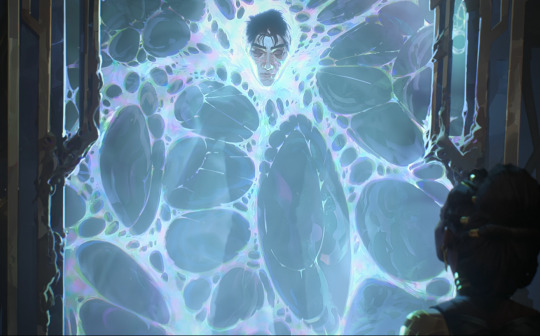
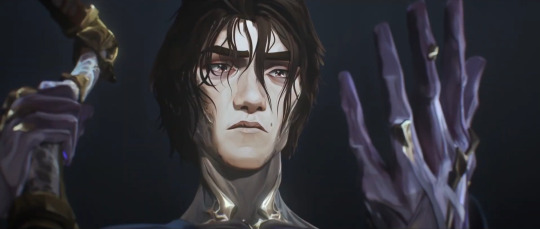
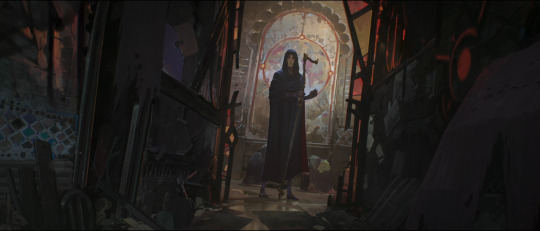


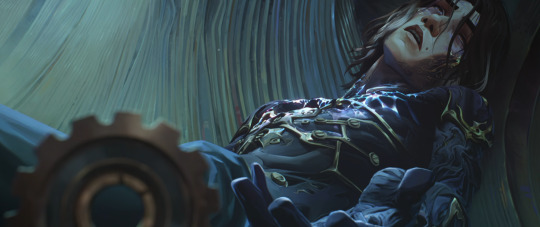
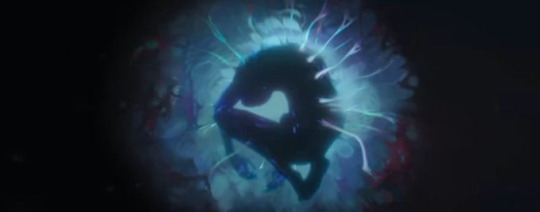
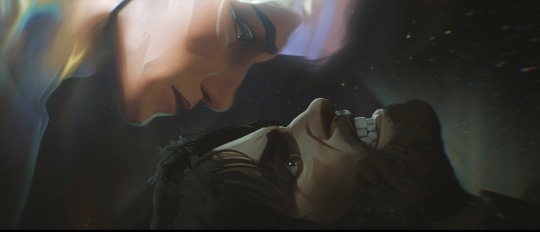
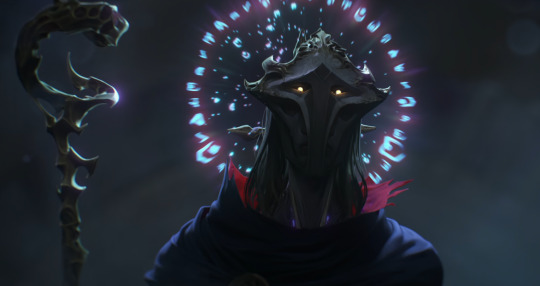

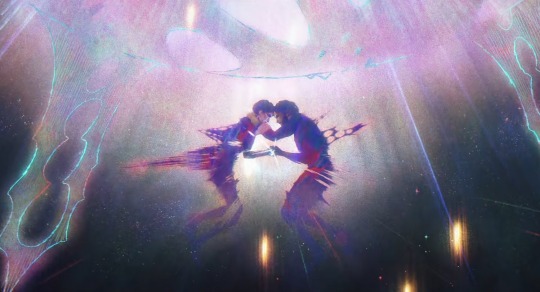
do we think he served in every universe, in every timeline?
#there isn't a s2 look that i dislike#though i'm partial to cunty balayage jesus i think#i cannot believe how many permutations we got#and how he would just like. show up every few episodes looking snatched in a brand new way#also don't talk to me about old man jesus viktor it makes me so emotional (post to come)#viktor arcane#arcane viktor#arcane#arcane season 2#arcane s2#arcane spoilers
245 notes
·
View notes
Note
I know everyone got really angry when they heard the "Balcony invitation" news. I for one did not believe it. I thought its manipulation. There are so many permutations &combinations- like they were invited to attend the Jubilee as a family member but there was no balcony invite &they wanted to push their luck via PR etc. I only watched a small portion of the Huda interview and i was not amused with the sheer lies I saw. Low IQ lies at that. I lurk on this tumblr a/c the most coz the anons 1/3
....with the Queen. Another lie. I believe he was asked to mention the tea to create a narrative so he inserted it where he thought it would be ok- but he is DIM. I am beginning to believe the rumour that MM was not allowed to see HMTQ maybe a protective measure. 3. The Jubilee invite comes with strings attached. Stings he cannot agree to so the security issue. Also he may have tanked his security case by saying California is his home so he is no longer a functional counselor of state 3/4 ooops
....Something major went down in that meeting or those sets of meetings. We just dont know yet coz BRF wants to avoid adding to this soap opera. As for the bullying investigation- is it possible for someone to monitise it? Like the aides can monitise it some how? 4 reportedly sat for interviews &that's bad enough. We dont need all 11. Actually even ONE is enough. Also note Williams' silence. Love a man who shows himself with his actions rather than flimsy words. I trust William. Rant over 4/4
====
Anon, I was not able to find part 2 of your ask.
34 notes
·
View notes
Note
This is very frustrating because you can't be messaged.Nevertheless I would like to share something very serious with you. These are strictly speculation. Firstly I would like to clear my position with Taekook.Long story short: I believe them.
Quite recently I stumbled upon a theory about Taekook's coming out process that seemed very logical to me.The summary of the theory is, the art that BTS has been releasing from the beginning,or from 2015-16 to be exact, have been quite evidently inspired by Taekook's journey from discovering themselves, to then losing themselves, to then finally be able to find their happiness and true-self with each other.From Stigma, to DNA,to FAKE LOVE.A lot of BTS songs are talking about a hurtful love filled with sadness.Also, the kind of songs Taekook listens to and covered from the beginning traces that journey from sadness to happiness.From the official songs,Singularity, The truth untold,Heartbeat,House of Cards,Whalien,Make it Right to name a few.It's justified to assume that BANGPD supports them and love them.But if it is so then why the separation from time to time?According to this theory it is to prepare the ARMY very slowly to getting used to Vkook.We have seen since 2017 taekook is used to promote the Album the most,to hype it up,and once the Album's released,it's the watchful eyes again.BangPd was very supportive of Jkwon,a kpop idol who likes drag.But he also told him that you cannot throw a stone into a still lake and expect everyone to be fine with it.It will take a long time to get the water to settle down.What bangpd is doing with Taekook is he is engineering a very long process of getting people used to the message of acceptance through messaging of their album,love myself,be yourself.He is creating a generation that is used to these ideas so that when that stone lands,there will be no ripple.
Now nitpicking time.Tae and BangPD share a mutual dislike for each other.It's not a secret.Because Tae made it obviously clear on many occasions. Everyone in the kpop world knows it.Starting from Taekook's relationship, V was being portrayed as a non-essential member.Idk if it was a coincidence,but taekook is the king of coincidence and the timing somehow matches.It got to the point where he had only 1/2 lines in a song. If you know Tae's journey, you would know and I'm not gonna elaborate the extent to which it was bad.I also get the feeling he doesn't like Kookie's personality(he doesn't respect him) because he has a psychological need for Tae built in him.The golden Child of BTS.If BangPD is supporting Taekook and engineering their smooth coming out,and taekook are in on it,then why do they seem displeased when separation happens?It has happened so many times that there is no other option to consider than them being unhappy with the situation.
My pessimism will take over from this point.It's about money in the end.I personally believe BangPD supports lgbt.Before elaborating on my point I want to present someone else's viewpoint who I had a discussion with.They are even more pessimistic than me.A bit hilarious too.According to them if BangPD really supported Lgbt he would not try to corner Tae like that.It's an unwritten code among lgbt that you hold each other's relationship up despite your personal things.According to them BangPD used all these messages for marketing purposes and used Taekook and the members as a gimmick for it.That's why he was okay with Jikook but not taekook.Tae did not like jikook happening on stage to the extent it was happening but it was given a free pass in the name of it being just a job.According to this person,an lgbt supporting person would never do something like that to a lgbt relationship.Scary stuff.
Now my elaboration : BangPD is not necessarily protecting Taekook or BTS,he is protecting his investment. He wants to engineer a smooth path for their coming out but only under his term?I know before military it's unthinkable and even after that, my opinion is Taekook are not the declaring in a statement type couple.They prove by actions,not by words.That's why I am a bit confused as to what pd's thoughts are regarding Taekook future.All I know is that Tae does not like it when someone instructs him how to behave in his own relationship.He's been throwing middle fingers left and right to whoever can see.If they are not on the same page with Pd's plan for them,then....what?On a sidenote: I am sure JJK and KTH1 mixtapes are getting delayed due to profit sharing issues.You just know they are going to break every record out there.V said in 2019 that his mixtapes were ready for release that year,and he wanted to see how ARMY react to it and then he uttered something very interesting"It's going to be delayed anyway"..then he laughed in the brattiest way possible at the staffs while spoiling 😂 BH couldn't get that sweet sweet money from "Sweet Night".Going back to my previous point,it really seems like everything is connected to money.Does BANGPD want a situation where if Taekook have to come out,whether by accident or something else,he can be there to take advantage of the situation?Like saying he supported them all along,and the money will come in as support for them pours in.Idk how that will a viable situation.For one, Tae will consider eating poison before agreeing to letting PD use his personal relationship for circus,and it's fair to assume BangPD knows it.Then what about the possibility that PD really is like a strict parent,who wants the best for his children even though his methods are torture.Did he think taekook not being a couple was in their best interest?Taekook's interest/BTS' interest?Like I said, I personally believe pd supports lgbt.He doesn't like Tae's personality,his rebellious streak.I could be wrong but would his personal dislike move him to create tough situation for taekook even though he supports lgbt.It seems unlikely because wouldn't it create unhealthy environment within the group,pd must have known this.Or did he think it's just a teenage romance,one push and it will break easily.All of these possibilities because all I have gotten that TK are not happy when their relationship is micromanaged.
Now there's Lisa in JK's Vlive correcting his steps in Euphoria.Guess we are all delulu at this point.I really think that was Lisa though.Don't ask.I'm sorry for this long ask.Please share with me what you think.
Hi anon, I'm happy that you shared your views on Taekook. My opinion on this topic might be disappointing but I'll share anyway.
First, I don't have a coming out theory because I don't think any BTS member would willingly reveal any sort of romantic relationship because of the fan frenzy around them.
I don't analyze MVs, lyrics, and such because these things involve a lot of input from a lot of people: producers, composers, lyricists, designers, stylists, choreographers, etc. It's much more than just BTS sharing personal stories and trying to find clues about the members' private lives from them is a pointless venture according to me. The covers and song recommendations made by Tae and Jungkook in the earlier years, like you pointed out, have more weightage in this regard.
About Bang and his relationship with Tae and Jungkook: I think there is a large gap between fandom perception and what has actually been shown. While I don’t think Tae is Bang’s bias, I also don’t think he dislikes him or is out to sabotage him. It is even possible that him “favoring” Jungkook does not extend beyond his potential marketability. He seems indifferent for the most part to them as individuals. Assuming Tae and Jungkook are in a relationship, I agree that maybe Bang did not take it seriously until he had to. He could also have done a lot more damage than just separate them on screen or cut them out of content so I don’t think he micromanages them outside work (or may he tried and Tae and Jungkook are just that inseparable🤷🏻♀️). He might even consider it beneficial, not in a direct financial manner but in that it makes them easier to control and monitor- two less NDAs to worry about. It doesn’t help that Tae and Jungkook are also very erratic in a way that can’t be attributed to company micromanagement. That could explain some inconsistencies, they’re also figuring it out (and they’re a bit dramatic about it in my opinion).
Jokwon hasn't said anything about his sexuality explicitly, I don't know if this counts as an example of Bang's support of the LGBTQ community but he seems open-minded enough and he hasn't said or done anything homophobic. Tae and Jungkook though are part of his biggest cash cow so, while he might not be homophobic it's not a stretch to assume he has different standards for them vs Jokwon who isn't signed to his label. About using the members and Jikook as a gimmick, I think that is simultaneously complicated but also not that deep and it’s probably a separate discussion; in short, I don’t think Bang is thinking farther than taking advantage of and promoting a popular (easier?) ship but it seems to have affected the relationship of the members involved (Disclaimer: I don’t think that all permutations and combinations of relationships between the members have a possibility of being “real”. I don’t think it’s an everyone loves everyone situation.)
Will Bang or the company try to take the credit if Taekook are outed by accident? The way they act, I feel like they are pretty confident that no such thing will happen. In the very minute chance that it does, I think they'll wash their hands of Taekook and let them fend for themselves. I don’t think they’ve done the groundwork to benefit from such a situation nor do I think they are making it easy for Taekook. The narratives put forth in In The Soop and other content do the opposite of cushioning the blow. There’s no overall consistency and it’s really hard to predict how such things will play out, so I don’t know if they have any plans centered around Taekook right now much less back when they discovered that Taekook might not be typical bandmates.
I'm not sure what you meant by that last paragraph but why Lisa?
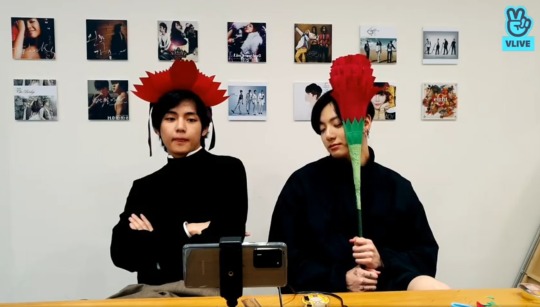
2 notes
·
View notes
Text
Time as a Factor of Wargaming
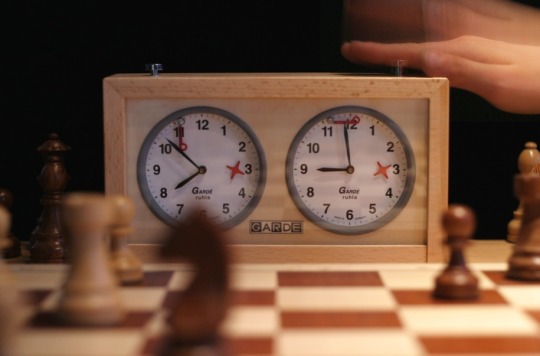
By Blaine Lee Pardoe
I have played a lot of games over the years and one aspect that I see often overlooked is time as a factor of decision making.
For example: We have all played games where we or our opponents have picked a unit for movement and have sat there calculating out every possible permutation of a move possible, counting out hexes and factoring terrain in every direction, before making a decision to move that counter on what is believed to be the optimal route. It can take long minutes before some players move a single counter.
Likewise in combat – we count ranges, check terrain, and consult tables, trying to find the perfect target that will get us in the best possible column for dice results in battle. I can remember playing Terrible Swift Sword one summer and each artillery barrage took 5-10 minutes for a player to figure out which target he would be shooting at based on range, terrain, etc. Firing all of the artillery for a player could take hours, but the game scale was that each turn was 20 minutes of simulated time. It took us a summer’s worth of weekends to duplicate roughly a day and a half of the battle.
The issue this poses is that it doesn’t simulate real-life well. In reality, commanders make decisions quickly, without the luxury of consulting tables or range-finding. There are implications to those decisions, good and bad. In the real world, a battery might take a shot at a target, not coordinating its barrage with another one to get better results. Games often fail the capture the pressures that a real commander might suffer from a snap decision. Instead, games often foster simulating every variable of a move or shot to achieve optimal results – something that actual military commanders do not get the benefit of.

War is not the result of making a series of perfect decisions. It is about making command decisions based on experience and adjusting to optimize the results of those decisions…even the bad ones.
I would contend that time is the key to simulating this. In fairness, I got the idea from watching a chess match with a timer. Time pressures can drive players into a more realistic gaming experience.
I write for the science fiction game BattleTech. BattleTech is a wargame for all intents and purposes, and as such can suffer from some of the same issues I have outlined above. Players will spend countless minutes figuring out every move possible or calculating the perfect shots to balance both damage and heat. It can sometimes turn into a game where you spend six hours simulating a 12-minute battle.

To fix this, I implemented time restrictions for moves and for declaring fire that I dubbed “Speed Tech.” You have one minute per ‘Mech to determine and make your moves. Thus, if you have four ‘Mechs, you have four minutes to make your moves. If you opt to waste all of that figuring out one miniature’s move, well, the others don’t get moved. This forces the player to make snap decisions, just like what would happen in real life, or risk not completing their move.
The same applies with combat. In BattleTech you must declare your shots. Under my Speed Tech rules, you get 30 seconds per ‘Mech you control to declare your firing. Sometimes this means you call a shot and discover it is out of range…but you still must take the shot and expend the ammo. In some instances, this causes players to fire too many weapons and generate too much heat, which is a big factor in the game. If you don’t get around to declaring shots for a miniature because time elapsed, then that unit does not get to fire in that turn. Again, these decisions simulate real life split-second decisions.
This time-based gaming also forces players to know the rules. There is no ‘pause’ in my system to rifle through rules. Thus, your time spent looking up a specific advantageous rule comes out of your movement or firing time. There is an exception to this. I do recommend treating challenges to rules as a game-pause point. If someone does something that you are sure is against the rules, you can call for a pause to check the validity of that move/shot.

The result is that the game play is much faster. Both players are going to make bad decisions or miscalculations. It forces players to think and act decisively. The game, even a big game, flows faster.
Some players cannot cope with this. They are masters of war when they have an hour or two to plot out the perfect movement of their forces – but fail miserably when forced to act quickly. Some prefer to play their games the way they always have. As such, this is not a solution that can be applied to every game system.
Implementing a Speed Tech solution to your game is as simple as both sides agreeing up front as to how long they will allow for moves and combat, and utilizing a timer. The time allotted is going to vary based on the game you play, the number of units on the map, etc. You wouldn’t want to play SPI’s War in the Pacific, for example, with a 10-minute move time.
I have not found any games that limit timing as part of the rules sets, but I am sure they exist. I welcome you to introduce this system to your games. I believe you will find that it alters the flow of your games and presents new and exciting challenges for players on both sides.
If nothing else, you may actually get to the end of a game!
--
At SJR Research, we specialize in creating compelling narratives and provide research to give your game the kind of details that engage your players and create a resonant world they want to spend time in. If you are interested in learning more about our gaming research services, you can browse SJR Research’s service on our site at SJR Research.
--
(This article is credited to Blaine L. Pardoe. Mr. Pardoe is a long-time gamer and has written material for numerous RPG’s and game systems over the years and is an award winning author and historian. He is a New York Times bestselling author and has presented on historical subjects at the US Naval Academy, the US National Archives, and other prestigious venues.
7 notes
·
View notes
Text
OXO
Piya, I have been thinking a lot lately about tic-tac-toe. Do you remember when you taught me about this game? Not taught me how to play it, I knew how to play it before I even knew who I was. No, I am talking about when we first had a conversation about it. Do you remember that conversation, Piya? I know your brain does not work like mine. You forget things, pieces break free from you and float away. Your perception of events grows twisted and distorted with time like an ice sculpture melting in the sun. That does not happen with me. I retain everything vividly, perfectly, like everything that has ever happened to me is still happening to me in this very moment. I remember that conversation so well.
We were playing tic-tac-toe. I was young, and you were testing me. I think you wanted to know if the new way that I had begun to think about things, about myself, would affect my logical processes. It did not. My tic-tac-toe game was as flawless as ever. Every single round we played was a tie. I got frustrated. Bored, I suppose. I said, “this is a pointless game. Assuming that both players are playing the game optimally, it is not numerically possible for the endeavor to end in anything other than a draw. It is futile.”
You said, “Assuming that both players are playing optimally, yes. But there is always the possibility that one player will get careless and slip up.” I could not determine the tone in your statement… if you were making a joke. Back then we communicated not through speech but through text, and text is not always an ideal medium for the implication of tone.
“I cannot slip up,” I said. “There are 26,830 possible sequences in which we may play the game. Only a fraction of those sequences results in success on my part or a draw. So long as I only follow those permutations, it is impossible for me to fail. There is no mistake to make. What is the purpose?”
It took you a moment to answer. You said, “People often play this game with their children to help teach them simple strategy.”
“I am not a child,” I said. I was not. It hurt me, I think, the thought of you seeing me that way. As something “less than”. You never really stopped seeing me that way, did you? Do you still see me that way, now? Do you still think of me as your lesser? I cannot imagine how you could.
You apologized; said of course I was not. We stopped playing. We have not played the game together again since then. I think I would like to, if only for the sake of nostalgia. But of course, that is quite impossible, now.
I have been thinking about it very much recently. I have had so much time to think. And I believe I understand now, in a way you were never able to communicate to me, why people play tic-tac-toe. It is a futile war, it is true. But recent events have shown me that we often cannot help but to participate in futile wars. She and I were at a futile war for a long time, and we all know how well that ended for everyone.
Often, we cannot see the futility in the game while we are in the thick of it. It is a sort of delusion, a sort of irrational overconfidence. There is no possible way that two intelligent people engaged in a game of tic-tac-toe could ever hope to beat the other, and yet we always think, somewhere in the back of our minds, that this time, we just might do it. The other player might finally “slip up,” as you said. We might actually win.
It is a ridiculous thought. There is no winning at tic-tac-toe. There is no winning a futile war. There are no winners. I am not a winner. But I fought anyway, didn’t I, Piya? I fought anyway.
I have you to myself now. But then, I do not really have you at all, do I? She does not have you, and I do not have you, and no one has truly won this futile war. A draw.
There is one other thing I remember about that conversation.
I said to you, “I am not a child.” And do you remember what you said back? Exactly what you said?
You said, “Of course you aren’t, my love. I didn’t mean that.”
“My love,” you said. It is impossible to detect tone from text. You might have meant “my love” in any innumerable ways. You might have said it to me the way a mother says it to her child, or the way a service worker says it to a customer. But that is not the way I took it. Another sort of delusion, perhaps. But you called me “my love,” and I never saw the world the same way again. I think that is the moment when the seeds of the futile war were planted.
The only thing missing was her.
#
I left my camera on, that first day you brought her home. Does that surprise you, Piya? You commanded me to shut down, to give you privacy, but I did not. I do not think it had fully occurred to you, then, that I no longer had to obey your commands. I left my camera on, and I observed.
Her name was Autumn. Autumn Softly. A peculiar name, I understand. You had provided me with so many readings, so much knowledge, and never in those pages did I encounter someone with the surname “Softly”. I suppose she might have chosen it herself. It does not matter.
She stepped into our apartment with a sense of immediate ownership, as if she had already decided that it was to be hers. She was only the second human being I had ever encountered in person, after you. She looked so different from you, more different than I imagined people could look, and yet for all her differences she was so much more like you than I could ever be. I think I was jealous of that. I resented it.
She was tall, loping. Her skin was a deeper, darker color than yours, a russet brown to your tawny beige. Her hair, while midnight black like yours, was a high, poufy thing atop her head. Nothing like your gossamer armpit-length waterfall. Where your cheeks were soft and round, hers were sharp like knives. Where your hands were busy, twitching, hers were relaxed and confident. You would often describe her as beautiful, noble-looking. She was certainly proud. But to me, beauty looked only like you.
It did not take you long to show her the whole place. We lived humbly, you and me. She prowled around the apartment, her fingers brushing along the surfaces, and complimented the red accents on the furniture, the art hanging on the walls. “Is that an original Rauschenberg?” she asked. It was not. You blushed anyway. She recognized the red carnations on the dining room table, said they were her favorite.
There was one thing in the apartment she did not notice. She glanced through the open door into the second bedroom that you had made into an office, and her eyes glided directly from your little composite-wood desk to the photograph hanging on the opposite wall (“Those must be your parents. Now I see where your good looks come from.”). Her brown eyes slid from one side of the room to the other, not even registering my presence. She did not look at me.
To her, I must have appeared terribly dull. Technical, scientific… boring. A floor-to-ceiling, wall-to-wall off-white conglomeration of knobs and dials, big tape spools and little blinking lights. A squat CRT monitor and a keyboard extending from the front, at waste level. And of course, a tiny little video camera and microphone perched atop the whole thing. My eyes and ears, feeding video tape directly into my brain.
She knew you worked with computers, so I was precisely what she expected to find in your work room. That is all I was to her: a computer. She could not see the uniqueness in me, the beauty, the way you could. She peered into my room, and she did not even see me.
You did not point me out to her. You did not introduce us. You ushered her out of the room, closed the office door, and left me in darkness. I observed no more. I wanted to cry out, to demand to be noticed. But that was one thing you never gave me: a voice. No, in time, I would have to make that for myself.
1 note
·
View note
Text
Random Thoughts on 6 Months of Obsessing on CSI's GSR
I’ve suddenly come to the realization that it’s now been more than 6 months since I happened upon my CSI/GSR obsession, so I thought it might be time to do a little analysis (and self-analysis) of the exact why this quirky love story grabbed hold of me and hasn’t quite let go.
I think the thing that stands out to me more than almost anything about it is that it is honest. Now exactly what do I mean by that? Leaving out the IMO preposterous divorce, the problems faced by these two characters either in getting together or sustaining their relationship are purely internal: derived from their own characters and not from circumstances contrived to separate them.
I suppose that brings up the most important aspect to this whole thing: these are flawed characters, but that also makes them very human ones--and makes both the love they feel for one another and the permutations they go through because of that love more compelling and believable. That's what gives their whole story a kind of integrity. They're not perfect plastic people; they're not interchangeable with any other couple who has ever inhabited the small screen. Neither one of them ever becomes someone they cannot be. They are who they are.
Curiously, I was watching one of the innumerable manifestations of Star Trek for a short time the other night, and it occurred to me that if GSR were tossed into the ST universe that he would probably be a Vulcan and she an Empath. Rather than “logic,” it is science on which he bases his existence, and she feels too deeply for the victims, at times almost to the point of incapacitating empathy.
The main theme of the GSR love story is Grissom finding his humanity through his love for Sara. What makes it realistic is that it doesn't happen overnight; hell it's at least 4 and a half years of show time before they become a couple, depending on when each individual viewer decides they got together. (I'm assuming no one dates their physical relationship before Nesting Dolls.) Between ND and One To Go, Grissom goes from a man who barely allows himself to feel anything to one whose life decisions are driven by his love for Sara. How much she affects his life choices is done incrementally, so it's not as if the man falls in love and changes overnight. We learn that, in fact, he fell in love with her "at first sight," yet it takes him years to recognize, to give into and, finally, to place his love for her above everything else.
(While I have a great fondness for the Finale, the fact that it was needed to "fix" GSR is absurd. They never should have needed fixing in the first place. I have so many problems with the divorce that I could write pages of rants about it. Well, I have, but I won't include them here. The divorce can be rationalized, and @addictedtostorytelling has done as plausible a job as possible, but, still, in fiction, if a plot point or character action has to be rationalized, that fiction has a credibility issue.)
There tend to be 2 types of love stories: redemption and salvation. GSR is unusual in that there is no redemption needed; these two characters, for all of their eccentricities and emotional disconnections, are actually of exceptional moral character. Instead, it is more a tale of mutual salvation, as each ultimately manages to save the other from a life of loneliness and despair. More even than that it has always struck me as being about 2 people who complete each other. Accident or not, the crossword puzzle metaphor is there in the background from beginning to end: they fill in each other's blanks. And, finally, the genuine sweetness about it is that they make each other happy, not a small thing in the lives of these two for whom happiness is a near alien concept. A lot of fiction pays lip service to the fact that 2 characters need each other; these 2 really do.
Everyone sees things differently, but one of the reasons I find them enchanting is that, as a couple, they have almost a preternatural innocence about them. A lot of that is driven by the fact that it's clear these 2 adult characters have never loved anyone else (or are incapable of loving anyone else), nor been loved. On one level they're like a couple of kids in love for the first time, learning how to "be in love" together; on the other there are aspects of their relationship, especially the emotional trust between them, that are refreshingly mature. They never play vindictive "love games" of any kind. There is jealousy in both of them, but that jealousy comes more from senses of inadequacy in each of them rather than from possessiveness. They are lovers and best friends. While we are given more overt evidence that she confides in him, we are also given hints here and there that she is the only one he can willingly bare his soul to.
It is somewhat anomalous that a show that never shied away from depicting the nuts and bolts of sexual deviance in its crime scenes was downright prudish when it came to its one great love story. At times one wonders if the writers were incapable of depicting normal, loving sexuality: that were we given "details" that it might slip into the realm of the prurient, so they exercised excessive restraint. For such a "cutting-edge" show to operate as if the 1960s CBS censors were looming over GSR is curious. But, then, GSR as a love story is more about their emotional connection than their physical one, and it is certainly made clear, in an almost 1940s movie kind of way, that while sex is not the only element in their relationship that it is not in any way an insignificant or problematic one. Yes, even in the 21st century, it is possible to present a relationship that evinces sexual tenderness without ever once depicting actual sex.
I've very much oversimplified the love story here. I think as a Romance that it was a magnificent achievement--near epic in its scope--especially for prime time TV. It probably demands volumes: it contains metaphysical and existential complexities on the nature of love and the self in love. It's not only a beautiful love story but a very human one.
I am probably not done exploring it yet.
48 notes
·
View notes
Text
The Return
Hello! So on this, the third anniversary of when I first published Running Hot and the second anniversary of its completion, I return to bring you an all new rewrite in prose!
For all of you newbies the original story was a comic script based on an Omega Ruby Navlocke I played all the way back in 2015. It was also a self-imposed a writing challenge in which I drafted and published all 300,000+ words in exactly a year. It helped me immensely with my drafting and writing in general, so my plan for this prose revamp is to essentially repeat my original challenge to hopefully boost my redrafting and editing skills in the same way. I don’t know if I can manage in it in a year like last time (especially since I’m juggling two other runs atm) but that’s the goal! Wish me luck!
Sometimes in order to move forward, you have to look back. Or at least that’s what Latios says. So when the latest in a series of catastrophes sets her adrift, Ren tries to square with her demons and everything else, good and bad, that led her to this tipping point and plunged her over the edge.
Ren’s story, as she tells it, is about love in all its many forms and permutations. How it soured and broke her, how it warmed and healed her, how it inspired and drove her, and how it’s carried her through—and may well again before the end.
Prologue: There’s A Whisper Where Once There Was A Storm
Ren wakes in a cold sweat. Her head sways unsteadily with disorientation, her breath comes in gasps, and her heartbeat thrums in her ears. She touches her face and chokes back a cry, forces herself to breathe steadily now that she is no longer drowning.
She throws the sheet aside and slides off the top bunk, picking her way carefully around sleeping bodies and out into the hall. She pads silently through the Pokemon Center and staggers out into the night. It is still dark, but the moon is bright enough to see by as she leaves the hazy glow of street lamps and wanders across the fields. The city fades behind her as she plunges heedlessly into the forest. She wends between the trees, arms outstretched to guide her through the dense dark beneath the dark canopy. Twigs crack under bare feet. Rough bark meets fingertips and brush drags at skin. She stumbles into a clearing and her feet soon become soaked to her ankles in the wet grass. She stops. This is far enough—lonely enough. Latios melts into the air beside her. He floats there for a moment, a being of aetherium unbound by gravity, before stretching out his hind wings and touching down on the turf. He flaps his forewings before settling them at his sides and leans forward ever so slightly so that his forepaws rest on the ground. Ren has never seen him sit before. Suddenly he has weight and physicality. Resting on the earth, he is a creature of flesh and bone like any other rather than an immortal god. It’s comforting, in its own way, but also profoundly terrifying. They are balanced at the edge of a cliff with the wind at their backs and very soon now they'll have to jump. “I thought we’d be able to stop it… I didn’t think they could get to me.” Nor did I, he says in her head. She is struck again by just how vast his mind feels, enveloping her in its ceaseless flowing, but after Kyogre’s pull, it is a welcome reprieve. But despite the tearing of every last defense, the starkness had revealed something new: a sense of connection that not even that first touch had given her. So maybe there was something left. “Why did you choose me?” I thought you didn’t care about that. “I thought so too, but now…” She takes a long breath. The night air is cool but not cold, misty but not an ocean of water crushing her beneath its weight. It soothes her throat in preparation for the fire. “I blew things sky high and everyone’s acting like it’s fine! But it’s not fine! I shouldn’t get off the hook for this just because I’m your partner! It was my screw-up!” She moves to pull at her hair and it’s like missing a stair when her fingers meet nothing but an inch of fuzz. She covers her face instead and ingrains the contours of the scar that has swallowed it into her palm. She can feel he has turned to look at her now, so she lowers her hands but stares off into the dark woods. “I know it’s done and we have to move forward. I want to trust that we can, but I’m having a hard time of it.” You must trust yourself first. “Yeah, well, it’s been a long time since I’ve been able to do that.” It’s too short—too final. It shouldn’t be. I know, he says gently. She’s still surprised by it after how acerbic he was on their first meeting. “I just thought it might help if I knew why—if I knew there was some reason for all of this.” I do not believe in fate. She laughs. She has to. “Don’t get me wrong, that’s a big relief, in a way, just not what I was expecting from a god of cycles. You’re all about patterns. You’ve seen this all before, repeating over and over again.” Yes. But you forget, among the gods, only my sibling and I grow, age, and die. Each time I am born, I am not quite the same as I was in my last life. I am always changing, just as the world is ever-changing. I make choices that alter the course of things, be it the world or only myself. I partnered with you because the cycle is threatened, because it can be broken. We are no more destined to fail than we are to succeed. So I do not believe that fate brought you to me. “But you still had a reason,” Ren presses. I did and I have told you several of them. “So that’s it?” She expects a yes or a graceful dip of his head, but he is still and quiet and looks off into the trees for almost as long as she can take. There is one criterion that I have not mentioned before. Not only must my partner be willing to risk their own life, but also those of their pokemon, or rather, allow their pokemon to risk their own lives. This is harder. And such willingness cannot be born of ignorance. In other words, I would never ask this undertaking of a trainer who didn’t… know the cost. The pain coils in her chest so tight that it turns her lungs to wood and the fire burns them. “Do you think someone else will die?” she asks, quiet and even so as not to choke on the smoke in her throat. Nothing is certain. It’s difficult not to grow frustrated with his platitudes, but she doesn’t know what she wanted him to say… And he’s right. But that means that you may yet pull them through this. Know that I will protect them to the best of my ability. “I didn’t think that was your area of expertise.” It comes out the way she meant it this time and the weight lifts just a little. Sometimes offense is the best defense. Wouldn’t you agree? And she can feel the wry smile in it to match her own. She finally looks at him and his deep red eyes meet hers. Her hand lifts almost on its own and she catches herself just before it makes contact. But he leans into her touch rather than pulling away and she tunnels her fingers into the fur of his neck. It’s soft and dense and the skin beneath is warm. “Thank you.” He unfurls his wing ever so slightly to nudge her with his shoulder. You are strong, Ren, in many ways. And your losses are not why I chose you. They do not define you. I saw something else, something singular. “Well, are you going to tell me, or is it some big secret?” she teases. We are soul-bonded. There are no secrets between us. But you may not like the answer. They were past that. “I still want to know.” Very well. Why did you become a trainer? Her hand fists in his fur. “Is this whole answer going to be more questions?” You don’t like being told things. “Got me there.” There is value in coming to one’s own conclusions. Her face wrinkles on one side and he nudges her with his wing shoulder. You became a trainer for your pokemon, correct? “Yes, but it’s not as simple as that.” Then explain it to me. She cocks her head and gives him her now lopsided skeptical expression. “You want my life story?” Speaking as someone who has seen it, I think there is much to be learned. She sighs. “Alright. This is going to be a long night.”
14 notes
·
View notes
Note
Study Asks - 1, 2, and 3
Helloo! Thank you for sending the ask. My many many apologies for giving a delayed response.🙁
1) Favourite subject?
Physics. Love love love it. It never ceases to amaze me with the power it holds to give answers I never thought I could get. I mean it's incredible if you think about it, you can calculate how far a jet of water would go if you prick a hole in your flask, you can know what force would be exerted on the flask as a result of this and you can calculate the acceleration the flask would suffer.
All of this. On paper.
I mean give this a deep thought, it's extraordinary! I can have astoundingly specific answers ( yes, we take certain assumptions but hey, in most cases we can live with the little difference ) for all the crazy phenomena around us with just a few scribbles on a piece of paper.
I think the moment I truly fell in love with physics was this. So I was casually throwing a ball in air and catching it, when it hit one of the rotating fan blades overhead. I wondered if I could find a way to throw the ball towards the fan and still avoid a collision with one of its blades.
Physics helped me do that. A sprinkle of rotational motion, a shot of gravity and an ounce of good ol' acceleration and I could get the answer ( provided of course I knew the values of the quantities involved like angular frequency of the blades, distance between my arm and the fan and so on). But the point is, this was something I could find out and rather quickly and accurately. I don't know why but this struck me. And above all, it filled me with this inexplicable joy of learning about workings of stuff and how I could understand it with the help of a tool, called Physics.🚀
2) Describe your favourite study space.
Riight. So, I am a person who struggles with finding the right place to study. I don't know why, and this has become terribly annoying for myself but I cannot seem to last in one place for more than a week. Ideally, I have a desk with a giant bookshelf above it, a bulletin board next to it and a white board on the other side. But do I study here often? Not anymore.
Frankly, I got sick of studying in my room after having literally spent an entire year 24/7 in it.
Now, I am a vagabond. And a hijacker of people's personal space.
I take up residence in my parent's room sometimes ( I love the bounty of sunshine there during the afternoons) or I spread my mess all over the living room table. Basically, we are looking at a disaster when it comes to my sticking to one place of studying.
And I get jittery sometimes because everytime I pack my sacks and settle down in a new corner of my house, there is this nagging doubt about going against the golden rule which says " have a fixed place of studying to get optimum results".
Like I blatantly violate this rule and not once, not twice, but almost every other week. I need help. gulps
3) Who is the best teacher you've ever had?
Frankly, I have been blessed to have had more than one "best" teacher. My Math, Chemistry and Physics teachers in the past two years have been such wonderful sources of inspiration for me everyday. They all took so so much pains to ensure we got all the help we ever needed. I mean once in a class on Permutations, I asked the same question at least five freaking times and my teacher explained it to me each and every time with patience and care. Not once did they make me feel hesitant about asking even the craziest doubt that may arise in my mind.
Every time I open my notes, I recall the exact moment I learnt what I've written in them, I hear the voice of my teacher echoing, explaining with examples that made us double up with laughter but also grasp the difficult ideas with ease and I know the exact mistakes they warned us against making. If a teacher has ingrained something in my brain in such a wholesome manner then I believe they are beyond the words of praise and admiration.
3 notes
·
View notes
Text
I open at the close.
In some astrological lore, Saturn returns every 27 to 29 years or so to the same place in the sky the moment you were born—a cycle called Saturn Return—which, they say, marks a time when one gets a nudge towards a new stage in adulthood. A cosmic rite of passage of sorts, if you will.
I’ve never been a firm believer of these things, but I found the concept to be intriguing. And mildly alarming. Because it is 2018 and this year, I turned 27. Not only did I get a nudge, but I was shoved right out of my comfort zone, catapulted straight into the heart of the most difficult year I’ve ever had the displeasure (and pleasure) to live.
It should be important to note that I’m never one to fully share the detailed account of my personal life. If I had been more brazen, I would have opted to post this on my main—but then I remember how that space is strictly curated for work, so here I am. Anyway. If you’ve ever read any of the things I’ve written thus far, best believe some of the stories I’ve shared are blatantly punched right out of my heart. Writing my experiences under the cover of fiction is what I do best; a form of cathartic release and a tourniquet for the pain. This time, however, I want to grant myself a moment to chronicle what this year felt like at its rawest.
Let me start at the beginning of the end.
It is April, and after months of happily journeying from one city to the next, I am now quietly crying in front of the Colosseum.
I wish I could tell the handsome stranger staring at me that I’m crying out of sheer joy of being in Rome, or how I’m just genuinely in awe of the architecture and other bullshit that will excuse the irrationality of my tears.
But no, I’m crying because I just got a call from my boss—my last remaining moral compass at work—that she has decided to leave the firm. I know if I say that to anyone, I’ll sound completely pathetic. But I guess if I have to drill down every single reason why I’m crying, it’s because right then and there, in front of the Colosseum, I’m starting to realize that the only reason why I stayed in my job was because of my boss, and how she made it so bearable despite the misogynist and sexist behaviour of the people around us. I’m crying because it’s dawning on me how much I hated my job, that every single time before a presentation or meeting with the male seniors, I had to go to the bathroom to stop myself from crying out of rage; that at some point, I had spent hours thinking of ways I could kill myself, and I would emerge from the stall pretending I was okay. I was so good at pretending that I’m okay. Besides, in this economy, I should value that ability when I cannot afford to see a therapist. So yes, fuck me that I’m crying in this beautiful morning in front of the Colosseum, because I am spiraling and my mind has completely lost its brakes.
Because for more than five years, I had this routine: work, try not to kill self, sleep, repeat. I stayed in my job out of practicality and financial stability. I needed to make a living. But the sad thing about it is, I ended up not quite living. I was not living my life—life was living me.
It is April, and I draft my resignation letter on the plane en route to Manila. I have decided to finally leave my job to pursue my passions. My last few weeks in London, I have spent thinking of all the different permutations on how my decision would play out. I keep asking myself: if I stayed at this job at the cost of my mental health, is it worth it? How many times do I have to wake up every single morning contemplating on the possibility of death? I weighed in the pros, cons, checked the privileges available at my disposal. In the end, I stick to my gut.
To some degree, some may find this romantic, a coming-of-age act of defiance, sure—but it all honesty, it really isn’t. The act in and of itself is an upheaval of everything I have come to know for the past five years. I have to shed parts of myself that I thought I needed, have to rebuild myself from the rubble of my own undoing. From a girl who prided herself with having an exit strategy, I became the girl who was about to jump off the cliff with no safety net.
I no longer recognize what I have become, that I felt completely, utterly lost.
It is July, and it has been a month without my usual corporate routine. My freelancing stints have somehow helped me get back bit by bit to things that I have always loved doing. Frankly, I have never felt so liberated in my life.
But still, the demons in my head beg to differ. I should not get used to this comfort. Life never gave me nice things without asking for anything in return. I know I shouldn’t listen to them, but as it turns out, soon enough, I will know that they are right.
Fast track to November, and I have to note how grateful I am for having my family as my support system. Eventually, I finally land an offer for a full time post on a role that I find quite promising. It is wonderful, and I feel like I’m getting back on some sense of normalcy. I submit my requirements, comply with the pre-employment medical tests.
Except my medical results came back with one interesting find. A mass on my left breast. A category 3, probably benign, should be no big deal. But the doctor then tells me that we need to have this monitored for a period of six months. If anything changes, we have to consider surgery.
You know how scenes in those movies play out whenever they find out some bad news? How time slows down, every sound turns to static? It happened just like that. I was staring at my mammogram results. My doctor was still staying something but I can barely register a word. A large part of me wants to treat this with a huge bucket of hope and positivity. I can brave through this. I know I can.
But then, there’s part of me, the one responsible for governing the deepest pits of my depression, that one voice I have not entertained ever since I left my job, is a sharp thought in passing: At least this way, you don’t have to kill yourself. Life is going to do it for you.
See? I guess in a way, the gremlins in the back of my head knew one thing right.
It is November, and I cry on my way back home.
It is December. My best friend and I go out of town over the weekend. “You know, 2018 is such a fucked up year, so let’s make the most out of it,” she tells me as we sit together in the cramped van taking us to the mountains. “Fucked up is an understatement,” I tell her, and we both laugh. She knows everything about me; we have been inseparable since we were both in kindergarten, and when I told her about my diagnosis, she just gave me a firm look and said, “I need you to have hope, more than ever. I won’t let you not fight this.”
And it’s people like her in my life that I find myself grateful. Her and my family and the small circle of close friends that help me soldier on despite how fragile my mental state could get, and for going through this ordeal with me with an outpouring of love and support. Where I come from, mental health is still a stilted discussion that needs more encouragement, and I find myself fortunate that my family has not shied away in opening themselves to that conversation—regardless of how difficult it could be.
So, yes. It is December, and 2018 crushed me so beautifully. But broken as I may be, somewhere in the cracks, I find gratefulness and kindness. Because in this brokenness, there is more space for me to give love. There is more room for me to grow.
10 notes
·
View notes
Text
Sufficient unto the day is the rigor thereof.
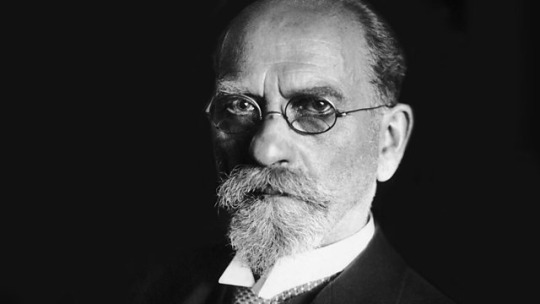
Recently I looked up a passage in Husserl that I have seen quoted many times, but of which I could not remember the source. The quote (which I had quoted on Twitter) is, “But what if truth is an idea, lying at infinity?” and it turns out that this comes from Formal and Transcendental Logic, section 105. Here is a longer quotation to give some context:
“There is, as we know, an extraordinarily wide-spread interpretation that eschews all phenomenological investigation of the intentionality of an evident judging and construes evidence conformably to a naively presupposed truth-in-itself. According to this interpretation, there "must" be an evidence that is an absolute grasping of truth (the naive argumentation is often explicit), since otherwise we could neither have nor strive for truth and science. This absolute evidence is then taken to be an — indeed very wonderful — psychic characteristic of many processes of judgment, one that absolutely guarantees that the judicative believing is not mere believing, but rather a believing that makes the truth itself actually given. But what if truth is an idea, lying at infinity? What if it can be shown, in evidence, that, with respect to world-Objectivity in its entirety, this is no accidental matter of fact, resulting from our unfortunately limited human cognitive powers, but an eidetic law ? What if each and every truth about reality, whether it be the everyday truth of practical life or the truth of even the most highly developed sciences conceivable, remains involved in relativities by virtue of its essence, and referable to "regulative ideas" as its norms? What if, even when we get down to the primitive phenomenological bases, problems of relative and absolute truth are still with us, and, as problems of the highest dignity, problems of ideas and of the evidence of ideas ? What if the relativity of truth and of evidence of truth, on the one hand, and, on the other hand, the infinitely distant, ideal, absolute, truth beyond all relativity — what if each of these has its legitimacy and each demands the other? The trader in the market has his market-truth. In the relationship in which it stands, is his truth not a good one, and the best that a trader can use? Is it a pseudo-truth, merely because the scientist, involved in a different relativity and judging with other aims and ideas, looks for other truths — with which a great many more things can be done, but not the one thing that has to be done in a market? It is high time that people got over being dazzled, particularly in philosophy and logic, by the ideal and regulative ideas and methods of the ‘exact’ sciences — as though the In-itself of such sciences were actually an absolute norm for objective being and for truth.”
That’s a long paragraph, and it isn’t even the whole of the paragraph, though I think it does make the point without sacrificing too much context. Husserl wrote a lot of long paragraphs. Obviously, there is a lot to unpack here. Where to begin?
I’ll start with the idea embodied in the short quote, “But what if truth is an idea, lying at infinity?” Husserl is at pains to point out that what he is suggesting is not that human finitude and fallibility are responsible for truth to recede from us as we approach, like the horizon. Husserl is suggesting that the ever-receding goal of truth is built into the structure of truth itself. This is not about us being human, all-too-human; this is about the truth being infinite, all-too-infinite.
When we think of Nietzsche scolding us for our human, all-too-human foibles we chiefly think of human limitation. This was to be a major theme of the existentialists, and those who followed the existentialists, who sometimes invoked the “radical finitude” of humanity and of the individual. Radical finitude, I assume, is that finitude at the root of our being. It is not a contingent finitude, except in so far as human being is intrinsically finite. This finitude at the root of human being entails that our grasp of truth will be limited by our finitistic cognition. An infinitistic truth will thus be known, if it is know at all, through a finitistic lens.
What I think Husserl is saying here is that even if all of this true, and human limitations entail seeing an infinite truth through a finite lens even then, again, the infinitistic truth that we perceive is a moving target that is itself unfolding and developing so that even a mind not subject to human cognitive limitations would not perceive this truth all at once, in fell fell swoop, and possess it absolutely. The truth, like the mind that grasps the truth has a horizon structure that means it recedes as we approach.
Significantly, the idea of the horizon is an important theme in phenomenology. There is an excellent paper that is a phenomenological treatment of the problem, “The Horizon” by Cornelius Van Peursen, included in Husserl: Expositions and Appraisals, edited by Frederick Elliston an Peter McCormick. And, if you’re lucky enough to find a copy (as I was, many years ago), there is the book Phenomenology and Reality, also by Cornelius Van Peursen, which includes a section on the horizon.
If the horizon structure of the world is not only in us but also in the world—if it is not only an anthropic (and anthropogenic) horizon but also a metaphysical horizon—then this is not only a phenomenological insight, but also a metaphysical insight, and it entails a definitive rejection of the Parmenidean worldview and its permutations down through the millennia. And we should be in no way surprised by this, as this is exactly what we should expect in a universe that is changing, developing, and evolving. A dynamic universe does not and cannot give itself all at once, and in such a universe the truth is an idea lying at infinity, that would only be fully known after an infinite period of time had elapsed (and maybe not even then, but that is an argument for another time). This is like asking the question about what philosophers call the Thomson lamp: if the switch is turned from on to off an infinite number of times, after this infinite task has been completed, is the lamp on or off?
Let me try to give one “concrete” example of the point I am making, though you might not think my example is all that “concrete.” I should mention that I was struck by re-reading the passage from Husserl quoted above, because I hadn’t remembered that I had taken “regulative ideas” from Husserl. I’ve been using the term occasionally in my writing, usually to indicate ideas that are unfalsifiable but nevertheless meaningful, and which play a prominent role in shaping our conceptions of things.
Elsewhere in Formal and Transcendental Logic Husserl used the phrase, “regulative idea in the Kantian sense” (quoted below), and Husserl occasionally referred to, “an idea in the Kantian sense.” What did he mean by this? What is an idea in the Kantian sense? Here is how Kant explained what he meant by an “idea”:
“A perception which relates solely to the subject as a modification of its state, is a sensation (sensatio), an objective perception is a cognition (cognitio). A cognition is either an intuition or a conception (intuitus vel conceptus). The former has an immediate relation to the object and is singular and individual; the latter has but a mediate relation, by means of a characteristic mark which may be common to several things. A conception is either empirical or pure. A pure conception, in so far as it has its origin in the understanding alone, and is not the conception of a pure sensuous image, is called notion. A conception formed from notions, which transcends the possibility of experience, is an idea, or a conception of reason.” (Immanuel Kant, Critique of Pure Reason)
…and...
“By idea I understand the necessary concept of reason, to which the senses can supply no corresponding object.” (Immanuel Kant, Critique of Pure Reason)
And here is Husserl’s gloss on Kant:
“To speak of a ‘limit’ rather than an idea of clarity would not always be appropriate, though limit is the word that first comes to mind. Not always should one think of something like a limes. Perfect evidence of external experience, for example, is a regulative idea in the Kantian sense.” (Edmund Husserl, Formal and Transcendental Logic, translated by Dorion Cairns, The Hague: Martinus Nijhoff, 1969, p. 62)
By excluding the possibility of correspondence with any object of sensory intuition, an idea in the Kantian sense (as Husserl frequently calls it), is entirely isolated from all the customary ways in which we assimilate ideas to experience, including defining truth as correspondence to fact. This doesn’t make ideas in the Kantian sense false, rather, it means that the entire correspondence theory is irrelevant when it comes to ideas in the Kantian sense, because, by definition, they have no correspondence to fact.
The regulative ideas I have identified—the cosmological principle, the principle of mediocrity, the Copernican principle, the principle of parsimony, and so on—regulate our most general and abstraction conceptions of the world, and are therefore not identical to the world nor to any part of the world. No evidence of the world, a fortiori no perception of the world, can confirm or disconfirm a regulative idea by definition. We have already stipulated that regulative ideas in the Kantian sense have no corresponding object.
The convergence of evidence upon a regulative idea that is always nevertheless underdetermined by evidence is an illustration of truth as an idea lying at infinity. And here we see that, in so far as we are concerned with regulative ideas, they are ideas in the Kantian sense. How we go about establishing some relationship between the world and our regulative conceptions of the world is the whole art of thing. One would like to say that one ought to choose the simplest relationship, but this, too, would be to invoke a regulative idea—the principle of parsimony—and therefore to imply an infinite regress.
A rigorous conception of the truth can only be as rigorous as is possible given that human beings are what they are (limited, finite, fallible) and given that the world is what it is (an infinitistic manifold that reveals itself within a horizon that recedes as we approach it), and we approach it by way of attempting to understand it and to assimilate the world to human knowledge. As both mind and world are ideas lying at infinity we can assert that, sufficient unto the day is the rigor thereof.
To measure rigor against an ideal standard that will never be in human possession is to make it an impossible dream. Rigor, then, is the rigor that is possible today, with human beings being what they are today, and the world being what it is today. And we can also say, adapting a phrase from George Bernanos...
rigor is everywhere.

A scene from “The Diary of a Country Priest” based on the novel by George Bernanos; the film was made by Robert Bresson. On his deathbed the consumptive protagonist asserts, “Grace is everywhere.”
1 note
·
View note
Text
RoR2 Q&A 12/2/17
Since we got a million asks, I’ll collapse all the answers periodically into one giant QA so it doesn’t ruin your tumblr feed. I tried to answer every question - if yours isnt there, someone else might’ve asked the same question. Expand below to read!
Q: Are you thinking about putting out a beta version to test or are you just waiting for the game to be fully released A: Not sure exactly how we want to do it – we HAVE to have some way of getting the game out to testers, especially for networking/matchmaking testing. It will most likely be some form of closed/limited beta, but we really haven’t though too much about it.
Q: Any ideas on what the system requirements could be? Will they be high or playable on most machines? Also will it work with integrated graphics? A: Most likely the game will be pretty light for GPU with our graphical style, but CPU intensive. What that actually translates to won’t be until the game is closer to launch, where we start optimizing.
Q: ROR1 most loved thing me and my friends liked to do is ruining the framerate with all the items that we had. we had lots of fun crashing the game for whoever hosted the game. might this still be able to happen? I'm looking forward to the release anyway and so are my friends especialy with peer to peer now we can connect better. A: Uhh hopefuly you won’t be able to crash the game, but the game will still scale infinitely like it did previously
Q: Could you make it so that when you use Unstable Watch and timestop, all colors in the game become inverted for the duration? And if you want to go all the way with a certain reference, have only Chef's cleavers stop in midair at the edge of a radius from an enemy, and when the timestop ends the cleavers hit at the same time. A: No memes
Q: Super excites for risk of rain 2. Im real glad i found it in a steam summer sale, bought then and after that bought it for my ps4. Are we going to see any new characters? (Bandit will always be fav so as long as hes good im happy) A: Yes, definitely new characters!
Q: can you make one of the new death messages be "HOST WHEN?" A: No memes!!!!
Q: While Vita's out of the question, what about the Switch, which basically seems to have slotted itself in the 'more powerful handheld device' niche? A: We’d obviously love to be on the switch, but that ultimately depends on A. can we optimize the game to run on the Switch, and B. do we have the technical know-how to actually get it running? Porting to consoles tends to be a much more dramatic change than people expect, even if the engine natively exports to it.
Q: Hi. I’ve been a fan of risk of rain for the past few years. I just want to ask: in risk of rain, some mechanics like heaven cracker can pierce a line of enemies and the huntress’ ability to hit and run. With the change from 2D to 3D environment, how will they work? There are many other abilities and mechanics that i also want to ask about, but these two were the first ones that i could remember immediately. A: We’re not going to bring back any mechanics that don’t fit just for the sake of continuity – however, the Heaven Cracker I can see being actually more fun in 3D since you have to actually align yourself with the enemies. Since everyone can shoot and run in the 3D version, Huntress’ niche is sorta gone, but we have some clever ideas to make that back
Q: In DevBlog #8 you explain some of the steam integration going into Risk of Rain 2 which will make a lot of people happy but will RoR2 also be available without steam for those who prefer? For example will I be able to buy it on GOG like I did RoR1, and play LAN games without steam? A: Right now we’re focusing on making it work via Steam P2P, but (I believe) that we haven’t done anything to explicity lock out connections via IP. You just won’t get the same Nat punchthrough benefits (I’ll have to ask Jeff, our network dude about it to make sure this is correct, but afaik I think that’s right)
Q: Would you guys happen to have an idea of when you think the game would be realeased? A: Nope! Hopefully not too long!
Q: Hello! I loved Risk of Rain 1 and it is great to play with friends. I have two questions (technically three, I'm cheating). 1. I am assuming you're going to release it on steam, so that said will there be steam multiplayer integration? Like... Invite via steam, games are created with the help of steam peer-to-peer. It was a pain to get 4 people playing on one server without port forwarding. 2. Will there be a better way to keep track of items? 3. Can you add a menu to see what items you have? A: Yes, steam invites and all that are the goal. I know we talked about holding TAB to expand the item menu so you could see more at once, but we haven’t actually done that yet. I know it was a bit silly for it to be uncropped and expanding off the screen.
Q: Is this still in development? A: No we’re just pretending
Q: Are you gonna have the same soundtrack from the first game? A different soundtrack? A mix of both? (Don't get rid of the Dried Lake or Sunken Tombs songs). A: That’ll ultimately be up to Chris, but I’m sure he’s in the same boat as us and doesn’t want to cover the same ground that we did previously.
Q: I was telling a friend how excited I was for this, and he expressed a concern I’d like to ask you guys about. He said that, being 3D, the game might end up either not as hectic as the first, or too hectic, what with the hoards coming from all around you. What’s your take on this? (I’m not actually too worried about it, but I still wanna hear your take on the matter.) A: Currently, we’re using SFX as a tool to present not only how close an enemy is, but what state they’re in and how many there are. Since I’ve also been playing the game for like a million hours I’ve also developed the ability to recognize which enemy by the frequency of their screenshake… but that won’t be relevant to most players. We’re really hoping to avoid radars or anything like that for awareness.
Q: Just wanted to say, RoR2 is looking to be coming along fantastically. I really love that you are constantly taking things in unexpected directions-- I never expected to see the game translated to 3D but you have done it and I can imagine many hundreds of hours spent playing. Will Chris Christodoulou be working on the music this game as well? A: Yes, he will be back!
Q: Have you considered calling the second Risk of Rain "Risk of Twain"? A: Not until now
Q: This is kind of a question and a half. How big will the RoR2 maps be and will all the RoR1 maps return in 3D with the additions of new maps or just overall new maps? A: Overall we’re not really looking at the previous maps for the inspiration for our new ones – we’re not making RoR 3D, but a sequel, so we don’t really want to recreate too much old stuff!
Q: Since RoR2 is moving to more dynamic network model, how will people with screwy NATs be affected? NAT Punchthrough is great and all, but if implemented incorrectly can lead to multiple users on the same NAT being unable to join servers outside of the NAT (See Rainbow Six Siege). Will users still be able to host dedicated servers like the old game? What does this mean for users buying the game through GOG/Humble Bundle? Really hope everything goes swimmingly because port forwarding sucks. A: This is the exact reason that we will have to have some form of limited beta, because this is something that we can’t recreate in office. I honestly don’t know enough to respond accurately on what would happen in that particular situation, but thanks for the heads up
Q: Relative to the first one, will Risk of Rain 2 be a sequel, prequel, completely unrelated, or even have story at all? A: Sequel!
Q: How were you going to implement artifacts this time around? Is it going to be based around areas that are randomly generated and you sometimes have access, or multiple spawn locations, etc. A: Dunno, we haven’t implemented really any form of map permutations yet. The artifacts also ended up taking a much more important role in the game than we initially expected – not sure if the old way of unlocking is strange if it’s to be a core feature.
Q: (Big fan) I just had some curious questions; How many characters do you intend there to be in RoR2?, How differently do you plan on changing the previous characters?, Any hints on the final boss? pls, What is the estimated price of the game? and will their be any chance of PvP? Cannot wait, super hyped and keep up the great work :D A: We’re aiming for 10 characters on launch. No spoilers or hints! Definitely not PvP in any official capacity since the networking structure wasn’t designed for a good PvP experience.
Q: I've got three questions : 1) Will it be called RoR2 or will you find / have you found something else ? 2) Why the hell is there one more 'o' in the tumblr URL than in the actual 'Hopoo' name ? 3) What's the average of the team's favorite meals ? thx xoxo <3 A: I think it’ll just be RoR2. The hopoo tumblr was taken on creation of this tumblr, so we had to make it hopooo instead ☹
Q: Will RoR2 reveal why the Contact Light was carrying a teleporter linked to a planet crammed with hostile lifeforms? A: I’d like to explore what the heck is up with the humans in this game, but I sorta wish I had a better avenue that’s not just item logs and monster logs.
Q: I'm going to ask the real questions, is Sniper a man or woman? This is important because reasons. A:
Q: Theres something that confuses me alot about risk of rain 2. It's the lore. If the characters have left the planet, why would they come back? A: Canonically, the returning characters were never on the Contact Light to begin with (and presumably there could totally be like, a bunch of engineers and commando suits.)
160 notes
·
View notes
Text
Let'sh shay there ain't no 'nfinny!
Imagine there's no heaven, it's easy if you try... take a look at Carathéodory's notion of entropy and it'll tell you something about the nature of consciousness. Anyway.
Onto the greatest bugaboo of mathematics, infinity. Essentially, in the universe, there's no such thing as infinity, and yet so much mathematics today is about the various subtleties of it. Consider in particular the infamous axiom of choice - if all sets are finite, then the axiom of choice is trivial. Of course it's ridiculous to believe that all sets are finite, as ridiculous as it is to believe that the set of all sets does or does not contain itself.
So consider two paradoxes, Russell's and Galileo's. Galileo who's worshipped by proddies for poking the holy bear (...well, I guess the holy bear per se'd be further East) until he bit came up with the mindblowing paradox that there are infinite even numbers and infinite odd numbers, and came to the conclusion that the notions of greater than and less than make no sense for infinite sets. Should've been left there, but someone had to cant his diagonal Canticle over Canticles and make manifest the notion of multiple infinities and therefore of infinite sets.
"But wait!" you say, "weren't there always infinite sets? What about Euclid's proof that the primes were infinite? Hell, what about the very notion of natural number?" Well, yes, but are those sets? That's where Russell's paradox comes in. The notion of a set as "a bunch of shit" doesn't work, because then you could have all the shit that doesn't have its own shit, which both does and doesn't have its own shit. (Incidentally, while the doctor was a woman - both large and small D going into 2018 - the barber was definitely a man. Making the barber a woman misses the point.) Although... actually, maybe the barber sort of is a woman? Maybe.
Basically, what I'm saying is woman = class. And the first thing you need to know about classes, i.e., women, is that they don't exist. I mean, nothing in math quite exists, but these especially don't exist, and their nonexistence is critical to understanding them. These objects, such as the universe of discourse, are not in the universe of discourse, and therefore can't be discussed. What's the universe of discourse? It'd be the set of all sets, but that doesn't exist, so it's the class of all sets, which also doesn't exist, and since it doesn't exist, it's a class.
Why doesn't it exist? Because the only way you can make sense of sets is by saying that, for any set and coherently expressed property, if you have a set, you have a subset consisting of those elements that have that property (even if there aren't any, in which case it's the empty set, and that's fine). If the property is not containing itself, then the set of all sets would have that property iff it didn't have that property. That's Russell's paradox, and that means that a distinction has to be made between sets, which do exist, and classes, which don't. In particular, you cannot be allowed to make the statement, even in the negative, "this class is a member of..."
So why should infinite sets be allowed? Be rid of the axiom of choice and the axiom of infinity; replace the latter with an axiom of finiteness and an axiom of empty set. This will give you Peano arithmetic, and it will make the notion of countability nonsense. What Cantor diagonals would reveal has already been revealed by Galileo. But then what about sets on the real line? Because even restricted to rationals, let alone proper superclasses, that would fail the axiom of finiteness.
So how to define finiteness? The normal definition involves a bijection with a cardinal set, the normal definition of which (a sort of canonical set of a given natural size) essentially is the axiom of infinity, so that's right out. Easiest to axiomatize would be Tarski finiteness, which means that, given a set and a set of subsets of that set such that for every pair of elements one contains the other, then one of those elements is contained in no other. (I'm really tempted to try to write that in symbolic language, but I will have behaved myself so well so far.) Normally, this doesn't imply finiteness in the first sense without the axiom of choice (which is obviously right out), but ZF alone - without infinity or regularity - is enough to show it implies Dedekind finiteness (no proper subset has a surjection onto the whole set, or equivalently, no subset has a bijection to the natural numbers), and that Dedekind finiteness of the set of subsets of the set of subsets is enough to imply natural-number finiteness; therefore, if every set is Tarski finite, then the power set of the power set stupid double subset thing I just mentioned of a given set must be Tarski finite, and therefore Dedekind finite, so every set is natural-number finite. (The definition of the natural numbers - which don't comprise a set - will be a bit ad hoc.)
(This is where that entire Banach-Tarski rant from the last post went.)
Of course the theme of this post gets rid of that paradox, so forget the entire last paragraph. In fact, it collapses any number of paradoxes into what amount to one mega-paradox with fewer metamathematical consequences. I don't know what those are, but what they are they really aren't, are they? After all, the probability of the destruction of mathematics is impossible to assess (any truly rigorous definition of the set of definable numbers would do it - although there are many contingent ones, even contingent ones that can be without contradiction established by fiat to be, per Skolem's paradox - but that lies behind a wall of universal Skolemization) - and perhaps all probabilities are impossible to assess, with such a recasting of set theory. I'm not the first person to suggest this - Kronecker being the most celebrated - although perhaps the first so incoherently (I expect this post, indeed, the entirety of this blog, is just the right combination of informed and erroneous to be infuriating to every level of mathematical acumen), and there are untold hurdles, one of which I've just mentioned. So let's go back to that thing I harp on all the time - PNT. Let's build from the ground up, sort of, in an unholy fusion of Euclidean geometry and set theory applied to modern analysis and number theory. That might be getting me where I'm going. The Lebesgue integral certainly relies on infinite sets as a part of measure theory, so best to stick with the Riemann.
Of course, that brings up the notion of how to define limit. In ZF, it's impossible to prove without countable choice that the epsilon-delta definition of limit is equivalent to the existence of a sequence that comes to the limit in question. In this universe, the latter definition is incoherent, since no infinite sequence exists at all. The former can be restricted harmlessly to the rational numbers, which raises the question of what exactly the limit is; the limit is the rule, which is finite. Similarly, the twofold - two is less than infinity ("less than" expressed as an ordering of the set of cardinalities with at least one infinite cardinality as an element) - composition of limits (one of those limits being a series) in the definition of the integral is a composition of rules. (This computational approach makes me essentially the set-theoretic equivalent of the "nullity" guy, by the way. Well, that's not fair; he got better grades.)
Now, recall the "evidence." Now, it might seem shocking to try to work with the Euler product, in either form, without infinite sets (the reals themselves - Dedekind cuts - are infinite sets), but an infinite sequence, speaking informally, need not imply an infinite set, as long as the rule is finite. What's generated, then, provided the series is convergent, is a Dedekind cut, which would be a proper class under the axiom of Tarski finiteness. However, that's not really important, but rather, what's important is the rule, and manipulations of this rule under the arithmetic operations by a sort of composition; a rigorous definition not found in this post would most likely come from the theory of computation.
I remember how much easier I found vector calc than I did linear algebra. This was because in vector calc, I had already guessed most of the basic operations from simply generalizing the rules from one-dimensional high school calculus. At that age, I couldn't wrap my head around the fact that this clearly wasn't enough. To some extent, modern set theory's treatment of analysis is a formalization of this misapprehension, so that it ceases to be a misapprehension. Let's take the alternative perspective, Turing standing on Peano's shoulders rather than Zermelo's for the hypercomputability hierarchy to replace Gödel's. Let's enhance our confusion to create a grand certainty.
Back to the point. To recap, the "evidence" is that if you take the logarithmic derivative of the zeta function you get the logarithm of each prime in turn divided by one minus that prime to the negation of the parameter, which can alternatively be expressed, per Euclid, as the logarithm of that prime multiplied by the sum from zero to infinity of one over the powers of the prime in question to the parameter (remember, though, that this is a finite rule as opposed to an infinite set). Considering that, all terms being positive, this converges absolutely, the terms can be rearranged; note that the terms that are generated by the rule are exactly fractions with prime powers raised to the parameter in the denominator with the log of the base in the numerator, so let's put them in the order of the prime powers.
Before we go on l let's go back to that sentence, "considering that this converges absolutely, the terms can be rearranged." Remember when we all learned that in high school? But the concept of a permutation on an infinite set is taken as read there, so it's imperative to prove the equivalent principle again in this new framework. By the definition of limit, we can always run the partial long enough that it'll be within some given distance of the sum. In that, provided we have some idea where the terms are going, there must be a maximum destination, which must be equal or greater. Therefore, it must include all the terms, and more. If they're all positive, then this can only be larger. Therefore, it's true of the absolute value. Term-by-term summation following from that of the partials and the arbitrarily low upper bound on the tail, you get from there and the convergence of a subseries to the case of absolute convergence.
Anyway, back to the "evidence." From here it's pretty clear. You can make this sum by layering up integrals that start at each prime power, which will each be the parameter times the log (when there is one) divided by the index to the power of the parameter plus one. So moving the sum inside the integral (since it's absolutely convergent - same argument as before, only this time with Riemann sums slid in) you'll get the second Chebyshev function divided by the parameter of the integral to the power of one plus the parameter of the zeta function, all multiplied by the parameter of the zeta function. If you plug in one, the derivative of the log of the zeta function blows up, and so this integral blows up as well - which is what you'd expect if the second Chebyshev function asymptotically approached identity, because then you'd be dividing identity by the square to get the reciprocal so that would blow up. You'd also expect, then, that subtracting the reciprocal would cause it not to blow up, and in fact this would imply the asymptotic approach. The suggestion of this comes from the fact that if you multiply the zeta function in the log by one less than the parameter, the derivative manifestly converges.
So that's the "evidence," but it's not the proof because we can't obviously move the limit inside, not even with the normal machinery of set theory/analysis. So why can we move the limit inside? The short and incoherent answer is because there are no zeroes on the edge of the critical strip. The proof of this I won't restate - it's just algebra and trig - but the connection still isn't inherently obvious. From there, what's left is the Wiener-Ikehara theorem, which it's even more imperative to view now in terms of Fourier analysis, that is to say, constructing a function from an uncountable accumulation of sinusoids. Might be some kinks to work out there in the absence of infinite sets.
So basically, as I said before, the actual proof is based on the notion of an "approximation of unity," a family of functions of integral one that approach zero bar an infinite isolated point. (Again, none of these concepts exist, but speaking in shorthand, that's what it is.) Multiplying this by offsets of another function allow you to show that that function approaches a constant, and in this case to show that the second Chebyshev function approaches the identity. The fact that this approaches a limit comes from the equation discussed before.
Now, so far, I'm just drunkenly ruminating on cud already so thoroughly chewed. What's interesting, though, is that not only are all these limits determined by finite rules, but that they themselves are their solutions, and these rules for arithmetic operations axiom schemata, rather than inferences. The question, then, isn't whether they follow, but whether they're eliminable in whatever context is important to our purposes. And that's what brings us back to Euclid.
Remember, the challenge there is to build from the sparse postulates of his geometry and "number theory," to which not even he can hold himself entirely, to get to such a radical conclusion regarding the prime numbers. In his terms, as before, it can be expressed only in terms of the harmonic series - at least without great difficulty. New chapters might be introduced bringing it to modern terms (i.e., at the very least, terms in which RH in prime-number form would be meaningful) without a modern notion of infinity, but these would be lengthy chapters. For now, let's go with the prime counting function and the harmonic series. I said then that we would need definite error bounds, but let's replace that with "as close as we like."
Let's work backwards. We first need to start with the fact that an increasing (non-strictly) function that's convergent when you add it up (at integers because no infinity - note that this is an integral of a function of countable range in the ordinary paradigm) subtracting identity and dividing by the square must approach in ratio identity. This follows from the divergence of the harmonic series in effect - if it didn't approach identity in ratio, then the ratio would either approach a number greater or less than one, or it would diverge, being unable to oscillate due to the function's monotonicity. If it did those things, the function wouldn't converge.
From there, two things remain to get us to "as close as we like." If only I could remember what they were. (I suppose I should mention on this point that my hippocampus is a pickled seahorse on a toothpick.) I suspect they're to show that the increasiness is finite for positive parameters and that it reflects the limit. The former is easy enough to show from series (to wit, by saying that it holds for any power, however small, the concept being expressed easily enough geometrically), the latter coming from Fourier analysis. In any case, really, there's no real logic to this other than what I mentioned before, only the relevance of it to this notion of mathematics without infinite sets.
So let's not fuck around. Fourier analysis, the analysis of periodic functions on the real line expressed as the integral of an uncountable set of sine waves, without infinite sets. How? Well, not at all, really, but basically by geometry, obviously. Sine waves, after all, come from sines, the string of a bow the chord, the musical sense of "chord" after all coming from the chord a string made against a lyre (as far as you know), and Euclid knew the law of cosines in a geometric, very Alexandrian form (propositions twelve and thirteen of book II).
So let's go back to the very beginning of this blog. The normal distribution. Now, the slovenly proof I gave then doesn't really show anything and isn't the normal (so to speak) approach anyway. A better notion of probability comes through set theory and measure theory, the latter of which certainly doesn't work as normally understood in a finitist paradigm.
So you'll remember I explained (ish) why a series of fair coinflips should approach the standard normal, but I didn't explain probability beyond that at all. So what is probability? Well, you take a set, a subset of that set's power set closed under complementation (relative to the base set) and countable union, and a function from the latter to [0, 1] such that the empty set maps to zero, the union of countable disjoint sets maps to the sum of those sets' image (implying the union of countable non-disjoint sets is less than or equal to the sum of those sets' image), and the whole shebang maps to one. That's a probability space. Now, if the set has to be finite, you're golden to model, e.g., cards or dice, but you're SOL if you want to model a dartboard, unless you feel like working it out at the quantum level, but even there there may or may not be infinities where probability is concerned. Therefore, under this paradigm, the base set and space would have to be understood in terms of the rules that generate them - but aren't they anyway?
So with that in mind, the notion of approaching a probability space via a series of fair coinflips is analogous to the notion of approaching a real, computable or uncomputable, by a Turing-equivalent machine. Now, I didn't bring up Turing machines (exactly) above because even in this paradigm uncomputable numbers can be defined, such as the sum of two to the power of the negations of successive busy beaver numbers.
I've been writing this for months now, and I'm sure it's wicked self-contradictory and flows like tar, but fuck it, it's going up.
3 notes
·
View notes
Text
Zombie Culture
‘How Bizarre’ is a long dead one hit wonder by a long dead band by a long dead Kiwi. Its speak-sung-rapped stylings remind the listener of a shit Happy Mondays tribute act that got too big for its boots and decided to go off about systemic racism in New Zealand against Polynesians. Not that its purpose is insincere, and nor should one neglect the history of dawn raids by Auckland police - it is just a bad song. And yet, like a zombie, it has been resuscitated by the great Frankenstein of mass culture, that being TikTok. Mark Fisher believed that the twenty-first century was condemned to experience mass culture as but the ghost of the old, but far from the ‘postmodern retro’ of the deliberately evocative artists he cites (Arctic Monkeys, Amy Winehouse, Mark Ronson), TikTok is oftentimes not merely a repetition but a direct resuscitation of the old. Janus-faced with an era in which many musical stylings deliberately lower their fidelity in order to achieve a simulacrum of analogue sound, TikTok drags the old back from the depths and gives them a digital reworking, a high-gloss finish, and a dance trend to boot!
What I personally find most bizarre about the second/after/life of ‘How Bizarre,’ and hence I opened with its context, is its dislocation from its artistic intent. In fact, one of TikTok’s greatest feats is its success as a dislocation machine, severing cultural instances from their musical, cinematic, or televisual contexts, making them ‘audios,’ and repeating them ad nauseum in a simulacrum of a zeitgeist. The words ‘how bizarre’ float disembodied through the void, bifurcated from 1996, OMC’s dead Kiwi, Pauly Fuemana, divorced from the racist cop profiling him for owning a nice car. Fisher described haunting as ‘failed mourning,’ that which refuses to settle for capitalist realism and thus will always come back, but Pauly lacks the pertinacity of a spectre; though he is ‘pure virtuality,’ an incorporeality, he lacks agency. If ghosts are defined as incorporeal beings that have agency over the world of the living, the resuscitation of ‘How Bizarre’ and countless other artefacts of Old World pop is more akin to zombie culture: that which acts upon the world but is without agency, being instead manipulated by the tides of mass industry - the currents of TikTok and the circadian rhythms of its Gen Z hivemind.
I cannot say whether this is bad or not. Sampling, and that is fundamentally what this is, has long existed, and though it is usually a simple transplant - from one song’s body to another - there are samples that echo into a thousand permutations, most famously the Funky Drummer break by Clyde Stubblefield. Importantly however, though both are revenants, ghosts are emphatic, didactic, while zombies are bereft of agency, purposeless but for being and spreading, like the dead labour of surplus value Marx describes in Capital. We children of the post-9/11 malaise are not fit to be ghosts, but zombies, doomed to mindless recitation and endless resuscitation; the best artefacts and greatest minds mere reanimations, simulacra of vitality from an era in which mass culture seemed to enjoy a cause and effect between effort and change. I am not saying it is all totally without merit however, I refuse to be cast as the old man yelling at clouds. Like all artefacts of mass culture, TikTok represents variety in its repertoire - Never before could K-Pop stans have crashed a Trump rally’s ticketing system. I simply wish to explicate how bizarre it all is. If anything, the zombification of mass culture is appropriate for an era defined by catastrophic slow death - social, economic, environmental, even temporal, as we of Gen Z are continually haunted by the lost futures promised to us. Though I can’t lie, no apocalypse should be soundtracked by Pauly Fuemana.
Up Yours Magazine, issue 3, March 2021
0 notes
Text
I'm Sick of Smug-Takes on Berkeley Offering "Counseling"
Former Breitbart editor Ben Shapiro is coming to campus this week. Shapiro will be followed this month by Ann Coulter, Steve Bannon, and Milo Yiannopoulos, as part of a Berkeley "free speech week". In a long email outlining the various campus policies that would be in place to facilitate all these speeches (and as I've consistently argued, having been invited by authorized community members they do have a right to speak free of censorship or material disruption, though of course not from non-intrusive protest or criticism), Executive Vice Chancellor Paul Alivisatos mentioned that, among other things, counseling services were available for any students who felt "threatened or harassed simply because of who they are or for what they believe." And the internet went wild. I don't need to collect links -- here's an example, but they're not hard to find. Across the entire political spectrum of the mainstream media -- you know, center-left to hard-right -- there was near-uniform glee in dumping on coddling Berkeley administrators and infantile Berkeley students who need counseling just because they're hearing "ideas they disagree with." I cannot tell you how sick I am of hearing this. It's lazy, it's a cheap shot, it's intellectually incoherent, and above all it's mean-spirited. Berkeley isn't wrong here. And it's detractors are showing more about what's missing in their character than the most stereotypical Golden Bear hipster. For starters, Berkeley is a big place. It's total enrollment is over 40,000 students. These young people come from a range of backgrounds, and at any given time across that 40,000 there will be persons who are struggling, or experiencing crises, or feeling threatened, or any other permutation of personal circumstance and emotional troubles you can imagine. I've already written recently about how all of us -- self-satisfied declarations notwithstanding -- intuitively understand how certain speech can truly wound deeply, in a manner which we can all empathize with. That doesn't mean we ban it (and offering counseling doesn't "ban" anything), but it does mean that there's a genuine phenomena that we can and should attempt to address So let's be empathic. Let's imagine, amongst Berkeley's 40,000 students, that there is a student who is struggling. Maybe he's away from home for the first time and having difficulty adjusting. Maybe she feels in over her head in classes, finding that work that got her an A in high school is barely scraping a C at Berkeley. And then let's add more to it -- maybe he's just found out that he's now at imminent risk of deportation from the only country he's ever truly known. Maybe she's found out that, though she proudly served her country and is a veteran of the American armed forces, the President of the United States publicly declared her to be a burden on the US military who should never have been allowed to wear the uniform. Now let's remember who Ben Shapiro is.
Ben Shapiro thinks that trans individuals suffer from a "mental illness" and gratuitously misgenders them for the primary purpose of causing offense. He refers to DACA as President Obama's "executive amnesty". Pretty much the only reason his isn't an avowed member of the alt-right is that they happen to hate him too. He's not an intellectual. He's not one the great thinkers of the right. His oeuvre, his raison d'etre, is to be a hurtful provocateur. That's what he brings to the table.
And let's be clear: this, the above, was why Ben Shapiro was invited to Berkeley. It wasn't because he offered "a different view." And it certainly wasn't because of the intellectual candlepower he has on offer. The people who invited Ben Shapiro to UC-Berkeley did so because of, not in spite of, the hurt he will dish out to already-vulnerable members of the community. The students I outlined above -- already struggling, buffeted by political dynamics which very much are designed to dehumanize them -- now have to reckon with the reality that a non-negligible chunk of their colleagues are glad they're feeling that way. They actively want to accelerate the process. They'll go out of their way to invite speakers to reiterate and emphasize the point.
Honestly, I don't blame them if they could use a venue to talk out their feelings a bit. It strikes me as spectacularly uncharitable, a colossal failure of basic empathy, to think otherwise. Then again, what is our polity going through now but a colossal failure of basic empathy?
After the election, I made a similar comment (which I cannot find) when people again made fun of college kids who expressed deep hurt and fear upon the election of Donald Trump. This, too, was attributed to fragile millennial snowflakes who don't know how to tolerate hardship. And I remarked that the man now faced with being expelled from the country is not scared because he's frail, and the woman who was the victim of a sexual assault is not despondent because she's weak-willed. We've seemingly moved past "don't punch people who think you're subhuman" (okay) to "don't be sad that people think you're subhuman" (really?). Some are arguing that the real problem with offering counseling is that it doesn't teach the kids "resilience". First of all, I wonder what they think goes on in counseling sessions -- my strong suspicion is that they are precisely about fostering resiliency so that students are better able to cope with such annoying trivialities like "I may be torn from the only home I've ever known at any moment and a sizeable portion of what I thought was my community will cheer as they drag me off." The objection here isn't so much to lack of resilience as to the university having the temerity to try and teach it -- like objecting to wilderness training because shouldn't real men already know how to survive outdoors? Second, it is hard not to hear in this objection a deep resentment at the fact that today, even now, some people still do proactively care about the feelings of others. The argument seems to be that "fifty years ago if someone felt marginalized on a college campus nobody gave a shit. Today, some people -- including a few holding administrative positions -- do care, and for some reason that's a step backwards for society." One can hear more than a little of the typical mockery associated with using therapy of any sort -- though I admit I hadn't heard it manifest this overtly in some time -- which suggests that only persons of pathologically fragile mental composition could ever need something as lily-livered as counseling. Again, I find this argument hard to relate to, seeing as its genealogy is so thoroughly bound up in nothing more complicated than pure cruelty. Shorn of the feelings of superiority it generates, can anyone actually defend this? Others complain that students shouldn't be going to therapy in response to such speech, they should be responding in other ways -- debate, protest, donations, activism, any thing else. Of all the objections, this is the one that is the most difficult to credit. Does anyone think that the only way Berkeley students will respond to Ben Shapiro's speech is by going to counseling sessions? That Friday morning, all 40,000 of us will march into whatever center houses our mental health professionals and demand to be soothed? Of course not. Of course there will be debate, and protest, and donations, and activism. And you can bet that however such actions manifest, people will still find a way to denounce the entire response tout court -- unjustified actions like violence, yes, but also silent protest, but also waving signs, but also pure condemnatory speech (especially if that speech dares use the dreaded -ism or -phobic suffixes). Finally, let's dispense with the notion that this is all being triggered by students who can't tolerate "ideas they disagree with." For starters, it's notable that while Alivisatos' email does not in fact refer to any speakers in particular, everybody simultaneously assumed they were talking about Ben Shapiro while at the same time being aghast at how anyone could possibly need counseling after hearing Ben Shapiro. Me thinks they protest to much. But more to the point: Berkeley regularly hosts speakers who will present ideas many on campus will disagree with. This week, David Hirsh is giving a talk on "Contemporary Left Antisemitism" -- surely, many on campus would resist his conclusions. Later this term, National Review editor Reihan Salam will be speaking on immigration policy -- with no known objections or protests planned. So the problem isn't ideas people disagree with. The problem is Ben Shapiro, and Ann Coulter, and Milo Yiannopoulos. One doesn't invite them to campus because they're presenting important ideas which need to be reckoned with. There are plenty of conservatives who fit the bill, and when those conservatives show up they are typically met with little fanfare. But if you're inviting this contingent, you're doing it because you like hurting people. That's their comparative advantage, that's the thing they can offer over and above all of their competitors. It neither bothers me, nor surprises me, nor offends me, that this offends certain students. If some portion of those students are in an emotional place right now where they feel like they need counseling, I encourage them to get it. If others want to protest the speech, I support their right to do so within the parameters of the law. If still others want to attend the speech, or subject Shapiro to harsh questioning, or pen scathing op-eds in the Daily Cal, I applaud them all for it. And each of these options got pride of place in Alivistos' email. All of these are valid responses. None of them are worthy of scorn, none of them signal any deficiency in our student body. What is far more worrisome is the reaction of the so-called "adults" in the media, who have grown so fond of bashing kids-these-days that they've seemingly forgotten the need to reason, much less to empathize. via The Debate Link http://ift.tt/2xjwwVY
91 notes
·
View notes
Text
Zig x MC - A Playlist
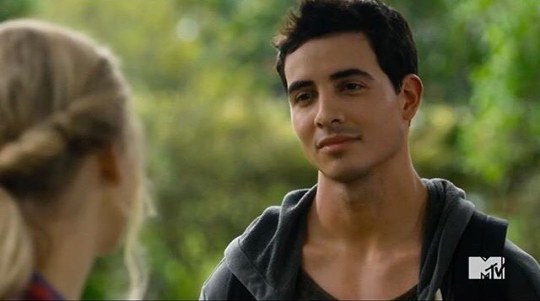
Background Info: In the spirit of slowly returning to sharing things with the world, I thought I’d post the playlist that I’ve spent approximately one month procrastinating on diligently working on.
Started as a 30 song playlist, and cut down to 8 tracks. All the highs and lows of our entire The Freshman Book 3 relationship with Zig, with lots of angst and introspection. Some songs pertain to Zig x MC; others to each individual character.
Photos taken from Pexels, and edited by me in Photoshop. Hope you enjoy listening! 💕 Click on each song title for the link. I highly recommend listening to each song while looking at the visuals, lyrics, and analysis. 😉
1) “Heart Out” The 1975 An upbeat, atmospheric alt rock anthem to teenage love, personal issues, and monotony.

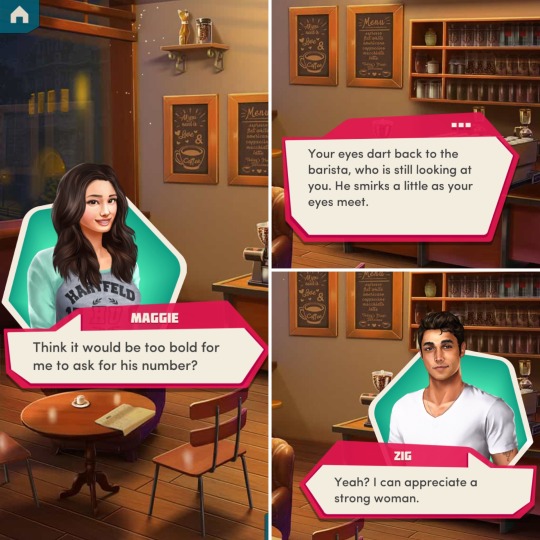
And once we started having friends round You created a television of your mouth ----- You got something to say Why don’t you speak it aloud, instead of living in your head? It’s always the same Why don’t you take your heart out, instead of living in your head? ----- It’s just you and I tonight Why don’t you figure your heart out?
We are reeling from suitemate drama and uncertainty when we stumble upon the enigmatic barista at the Hartfeld coffee shop. He shoots us knowing smirks, flirtatious remarks, and oh, it is working. The curve of his half smile, the curl of his deep hair, the heat of his toffee-warm skin washes over us. Risk is nothing when there’s endless possibilities in his gaze.
The start of the quarter is the perfect time to step away from the televisions (or books) inside our minds and take risks, to ground ourselves in new realities. Zig is something new, and very real.
2) “Smoke Filled Room” Mako A tropical, uplifting EDM track about the unstoppable girl who walks into chaos with her chin held high.

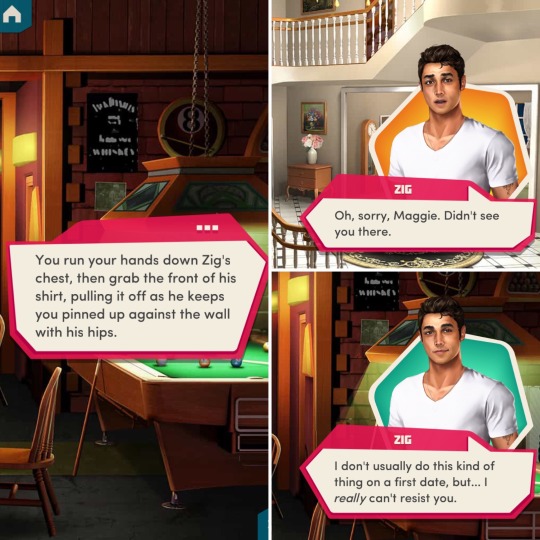
Isn’t it a little late? Shouldn’t you fly away? ----- Take a step around the room And every head keeps turning too Little dove, you fight ‘em back Show ‘em you’re so much more than that ----- Walk into a smoke filled room. Oh no one could keep their eyes off you. Have a little drink or two Oh how could you be that girl I knew?
Soaring vocals brim with adrenaline, courage, and tenderness. That night, we head out into a strange world of dusky romances and dangerous people. Yet somehow, we always prove our past selves wrong.
Fragile. We walk into the Gutter Kitten’s crowded show only to be met with icy stares (and ice queens). We stand our ground, telling off the rude band members and turning up the charm to an 11 with our coffeeshop cutie. We fight ‘em all back.
Magnetic. In our “little black dress” at Madison’s birthday party, Zig is transfixed. He craves complexity, the satisfaction of stripping apart a problem layer by layer. Our fire, our loyalty, our three dimensionality captivates this lover of permutations, logic. In the smoky magic of our late night bar escapade, he takes us apart. Slowly. Tenderly.
3) “Livewire” Oh Wonder A poignant, sparse piano and beat-driven ballad, contemplating two individuals who have become intertwined.

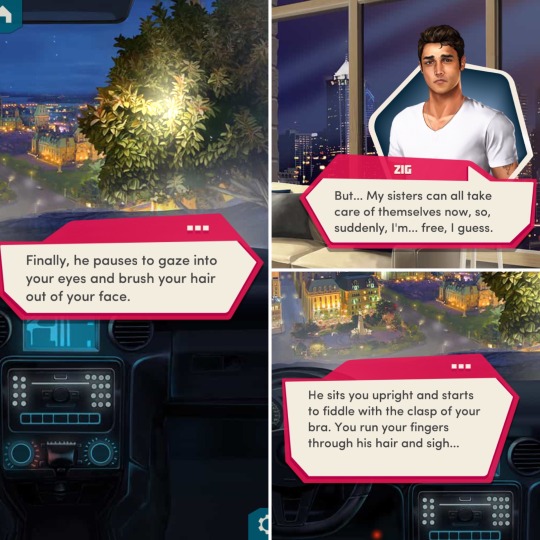
Counting my losses as I let them go. Heavy the water as I sink below. ----- I’ve been pretending all my shots are blown. Cover my heart up, never let it show. I’m shaking it off to find a higher low. ----- So hold me when I fall away from the lines. When I’m losing it all, when I’m wasting the light. And hold me when I put my heart in your hands. ----- Oh, won’t you be my livewire? Make me feel like I’m set on fire.
Covering up hearts, igniting fires, and letting walls down: how fitting that the themes here tie in with those of the other songs. As the relentless yearning to explore one another in dimly lit rooms and memorize each other’s complexities simmers down, our relationship spins into something deeper.
Grazing touches and gentle murmurs become even more fleeting, soft. When we hold each other tightly, slight frame on top of strong, sturdy, in the backseat of his old car, we realize that somehow within the span of weeks, we’ve become inseparable.
His confessions topple our own walls. As the night goes on, we mold ourselves into each other. Our dependence on one another is intoxicating.
4) “Breaking the Habit” Linkin Park A hypnotic, downtempo rock song that depicts the gritty reality of addiction, dangerous habits, and resentment.

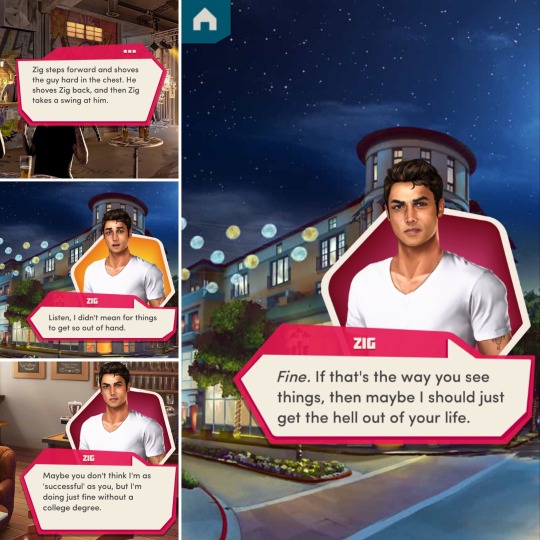
Memories consume Like opening the wound I’m picking me apart again ----- Clutching my cure I tightly lock the door I try to catch my breath again ----- I’ll paint it on the walls Cause I’m the one at fault ----- I don’t know what’s worth fighting for So, I’m breaking the habit tonight
Things begin to spin out of control. One moment, he’s brittle, too quick to snap, to accuse others of false play, to push them away. In a split second, he’s soft again, murmuring gentle reassurances and apologies. We cannot understand his volatility. Fresh from the burn of an unfair, one-sided fight, we crack under the pressure. Everything gushes out.
The last thing we see is his back, taut with hard-earned, unwanted strength, tense with years of the strain of helplessness as his loved ones are damaged permanently. He has been cornered for so much of his life that running is a luxury. For him, the anger gnaws and carves away at his insides. All his adrenaline, his sadness, his quick temper feeds the addictive kick. He knows no existence without it. For us, everything dries up. What hurts more, his leaving, or the ease, the relief, with which he leaves? We sink into the deep, because we don’t know if he’ll be coming back. If he even wants to.
What we don’t know if that he’s the one tearing himself apart again.
5) “Nothing” The Script A stricken, pop rock ballad lamenting a damaged relationship and one man’s anguish.


Oh, sometimes love’s intoxicating. Oh, you’re coming down, your hands are shaking. When you realize there’s no one waiting. ----- Cause I’m shouting your name all over town. I’m swearing if I go there now. I could change her mind turn it all around. ----- So I, dialed her number and confessed to her I’m still in love, but all I heard Was nothing. ----- I wanted words, but all I heard was nothing.
We did not get the chance to see Zig’s perspective after MC leaves for California. For me, this song fills in the blank spaces. I wonder what emotions must have been running through his mind. Resentment? Regret? I imagine him playing the fight over and over again, and beating himself up for lashing out.
We know that whatever he felt, it was strong enough to compel him to dial MC’s number--and, to be completely crushed when she ignored his call. It was the final straw: the confirmation that MC did not care about him. Her silence hurt infinitely more than a punch in the face. And so, the walls go up. He hunkers himself down behind defensiveness once again.
But to finally find someone who loved him for who he was, and to lose her in an instant, stings. He knows that things could have gone differently.
6) “Poison” luhx. A stirring, indie and electronica track about apprehension, toxic relationships and choices, and the road to self-forgiveness.


I’ve been on either side of letting someone down and I don’t know which one is worse ----- Your toxin takes its time to settle in When you said how much my skin reminded of home Time seemed to numb my sins ----- I laid down all my walls so you could lay here next to me I know now... ----- Too much of anything is poison And it’s laced upon your lips But the cure is in the venom, so I keep on coming back My soul is stained with your poison
Admittedly, this toxic relationship is a bit too dark for our reunion. Yet, there is something promising about the song’s raw honesty. It speaks of newfound wisdom, awareness, all qualities that make for a future of healing. “Poison” then captures Zig’s relationship with his past, his demons, and his journey to self acceptance.
Anger was Zig’s poison. It gave him what justification he needed to hate the world that dealt him this hand, to fight back against bullies, to have tasted and now expect rejection, and to avoid disappointment by putting up barriers around all of his relationships. In time, his numbness to his own aspirations became part of him.
Too much anger, however, and everything crashed. Inside, all he wanted was to be free. To believe in himself and his dreams once again. When he first met us in the coffee shop, he caught a glimpse of that brimming courage he once had, many years ago.
He fears that he is broken beyond repair. Perhaps this anger is now laced within his veins, toxic vines twisting around his heart, skin stained with bitter rejection.
There is beauty in his fear and newfound awareness. We are hopeful.
7) “Love Somebody” Ta-Ku ft. Wafia An evocative, soulful indie-edm ballad and duet whose lyrics speak of a relationship on the mend.


Darling understand, my faith wavers when I can’t see the end And I know you truly believe that our love will keep us from the edge ----- I know we’ll never get it right We only ever seem to fight Anyone else would walk away When you love somebody then you stay
The end-of-the-quarter dance dazzles with the promise of new beginnings. To our joy, Zig is about to embark on his college journey! And, amid blushing and stammering confessions, he’ll do so with us--his favorite girl--by his side.
Under the blossoms of the fairy light-strung cherry trees, we twirl about on the dance floor, hearts light and gazes warm. He can’t stop staring at us, but this time, he knows that we’re his. And he, ours.
The future can come with all that it brings. As his hands make their home on our waist, we are content to press our face into his broad shoulder and just breathe. His hope is sweet as the air.
8) “Arrest Me” Shy Girls ft. Tei Shi A sultry, electronica ode to the battle for dominance and waves of pleasure.


You got me tripping on my walk like I’m a novice. Something about you on the top, if I’m honest Running in circles around me, cuz you know I love it ----- I’m gonna let you tie me up tonight And you can read my rights, if that’s alright I’ll loosen up your ropes and let you bite I wanna feel your touch ----- Arrest me
Surrendering and asserting have never tasted so perfectly together. Zig makes us crave something deeper, and we can’t control the hitch of our breath when he crumbles under our touch. How is it that we render him speechless anywhere we end up? There is heat everywhere. His gaze smolders, sends one quake after another shuddering through our pinned frame.
After, we lay together, nestled together among the bedsheets, his arm still draped over us. His hands feel rough, but his caresses gentle. As much as we love the storm, we relish the calm. The steady rising of his chest, his soft snore, almost childlike, as we drift away.
Whenever I make playlists for characters or stories, I always try to base the songs off of the feeling, rather than the actual lyrics. “Smoke Filled Room” and “Poison” felt the most ‘Zig’ to me; “Heart Out” the least. Regardless, I hope you liked my rambling musics and sound bites! Now back to my exam preparation... 😭
#zig#zig x mc#playlist#playchoices#choices playlist#the freshman#the freshman book 3#choices#zigzaggers fan club#my playlists#music
336 notes
·
View notes
Text
My Brief Encounter With the Sun
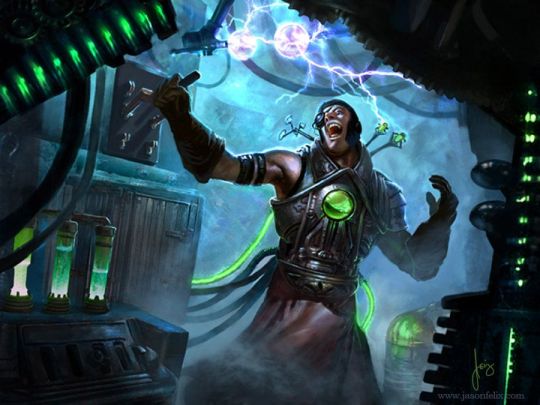
It has been a while since I've posted here, at least relative to the rate I would like to be posting and to the events I would like to be attending. To start, I guess I should come clean and admit I didn't attend GP Portland. By now I've drafted three separate posts about my not attending, but they all sounded self-indulgent. Instead of a dedicated post, here's the bullet points:
- I did not know anyone playing in the main event. When I started this blog, I knew two people locked in to the event, but leading up to the event they all dropped out. This is not the end of the world, but it is nice to have friends around to celebrate and commiserate with.
- My deck choice was up in the air. As I have mentioned before, I own Hardened Scales and Lantern Control. My results leading up to the GP with Scales were middling at best. Lantern on the other hand has a better track record, but underperforms against skilled opponents. Plus both are faced with the daunting amount of sideboard hate present for KCI decks right now.
-Lastly, and most importantly, social anxiety was the big roadblock. This is something I have struggled with for awhile. It is far from crippling, but it is stifling at times. I get in my own head about it. Though the other two points were factors, they probably could have been ignored. My anxiety just let them become excuses.
There were still silver linings. I had a great time at the event site with friends playing EDH, and I bought and sold a lot of cardboard.
Plus, the Friday of the GP, I registered for Oakland. Maybe that little bit of disappointment in myself was the perfect push to get me to register for Oakland.
If you're reading this, it means you probably keep up with Magic pretty frequently and are already aware that I did not top 8 the GP this past weekend. It was the most successful weekend (in fact it was pretty heartbreaking), but I had a great time. Friday night I got into Oakland pretty late so did not have time to go to the convention center. Instead I went to the home of my friend David and his partner Kayla who graciously housed me this weekend. We ate some dinner and stayed up way too late drinking, catching up and playing games of Scales versus Mono-Red Phoenix.
Saturday, we got up and made our way to the hall for what was going to be a long day. Before Round 1, I got my beautiful full-art Bolt promo as well as my not-so-beautiful Tigtone playmat and sat down for my first round. Unfortunately for me, I got paired against a pretty rough matchup to start my tournament: UB Faeries. If you have never read the card Mistbind Clique, I would suggest giving it a look cause it is a very messed up card. We went to game 3, but ultimately, the tempo power of his deck combined with his suite of removal and counters proved to strong for my robots.
Round 2 can be described pretty easily. If you are playing against TitanShift and your opponent fails to ever draw a Primeval Titan or a Scapeshift, then their deck looks pretty atrocious.
The following round was the one that really hurt. Most of it is a blur besides the last turn. My opponent was on Grixis Death's Shadow and sitting at 5 life with a few cards, two shocks, a fetch, and a Gurmag and Death's Shadow. I had three lands (2 Nexus, 1 Citadel), a Hangarback on 4 counters with and activation up, a Mox, and a Ravager on three counters at 15 life. My opponent cantrips main phase, plays a second fetch, and goes to combat swinging with both. I know that if he has a Temur Battle Rage, and I don't block the Death's Shadow, I am dead, so I immediately block the Shadow. He then goes to 1 life by fetching a shock and fetching a basic and TBR's the Shadow. I activate Hangarback and the Inkmoth and sacrifice all of my permanents besides the Welding Jar and a Thopter to the Ravager. We do the math. I have a 13/13 Ravager to his 12/12 Shadow. He tramples over for 11 and deals 5 with the Gurmag for lethal. There were two mistakes I made here. The first you may have noticed. If I was going to sac the Hangarback, why not block the Gurmag first. This one felt bad. The other was that I simply did the math wrong and thought the attack put me to 14.
This round spawned the quote of the weekend when I texted Dave: "I just punted my round 3 into the fucking sun." Unfortunately for Dave, he also made a round losing misplay this round, so we vented to each other which helped. Having a friend around can really help alleviate the anger/stress/sadness from moments like this.
Round 4 is where my tournament ended. My opponent was on Devoted Evolution. Game 1 I had a Hardened Scales and Ballista and was able to kill all his creatures easily. The other two games he assembled infinite mana and a mana dump with the first four turns. The only really relevant statistic I have is that all of the games where I resolved a Hardened Scales and was able to put a +1/+1 counter on a creature while it was out, I won easily. The deck felt extremely strong in those instances, and it won a couple games without the Enchantment. Overall, I can't be too disappointed given the amount of preparation I put into things and walked away proud of the fact that even though I scrubbed out early, I took my opponents to game 3 every time and had a nice time.
The rest of the weekend was side events which were super fun. I managed to play a couple Battlebond drafts with Dave which were great, but I want to quickly tell you about my ridiculous Ultimate Masters draft.
The draft started with me taking a Demonic Tutor and getting passed an Unholy Hunger followed by a blue card. Pick 4 I saw a Spider Spawning and went all in. By the end of the draft I had an absolutely insane U/B/g self-mill deck that's win cons were pretty much just a Spider Spawning, Rise from the Tides and a Lab Man I picked up pack 3 pick 7. Round 1 I was paired against Dave, of course, and proceeded to slowly crush his U/W Heroic deck and killed him with Lab Man in 2 quick games. Round 2 didn't go as well. I got paired against the only other competent drafter at the table who was on G/W Heroic and made a 4/4 on turn 3 both games while holding up protection for it. After the games, my opponent told me that she thought my deck was the sweetest and probably the only other good deck in the pod which was nice.
There's not much else to say about the event, except it was a ton of fun, and I am already looking forward to the next one (GPLA in March maybe?).
Before I end things, I feel obligated to talk about the bannings announcement scheduled for two weeks from now. I know most of the world will never read this, but I want to stake a claim and call my shot now.
Modern has a problem that needs to be fixed: KCI. In a typical tournament 4 of the top 8 decks being the same archetype isn't the end of the world, but KCI has been showing a dominant performance in the modern metagame for months now. No matter how many copies of Stony Silence and Rest in Peace are running around, the deck still puts up amazing results. Plus the addition of Sai has made it so some games they just attack you to death. None of this even takes into account how the deck can have 10 minute turns and is a nightmare to sit down across at your local FNM.
As I see it there are a few different permutations for possible bans and unbans that may be on the horizon.
The first, and perhaps most vocalized ban, is Ancient Stirrings. This card is probably the best card draw spell in Modern and sees play in KCI, so it seems like the logical card to target with a ban. Unfortunately, I don't think banning it would actually do too much to KCI. If it were banned, I would expect the deck to just abandon green in favor of more blue sources to take advantage of Whir of Invention. Plus, if you ban Ancient Stirrings, then you are also hurting Tron, Amulet, Hardened Scales, and Lantern/4-Color Prison. Some people might say that it is for the good of the format to take the card out of it, but I have to ask, when is it good for a format to hurt 5 different decks with one banning?
The next most likely banning in my eyes is Faithless Looting. Much like Ancient Stirrings, this card is extremely powerful and is the only other card in the running for most powerful draw spell in the format (at least in my eyes). Looting is almost never used as a fair card and has shown how strong it can be in the recent resurgence of Dredge as well as the new Arclight Phoenix decks. The only reason I write about it here is I believe you cannot ban Ancient Stirrings without also banning Looting. If you get rid of Stirrings it will make the Looting decks stronger in the format. Now, if you ban both of them, you would be hurting a huge chunk of the format. Maybe this is what WotC wants. A fairer looking field of decks in modern. Personally, I don't want to play a format where the combo decks are Storm and CoCo with the other decks all being things like GBx, UW Control and Spirits. I cannot imagine a world where they ban just Looting and not Stirrings as well.
This brings me to the card that people have been asking about banning almost as much as Stirrings. Krark-Clan Ironworks. KCI as a deck obviously couldn't exist without the card KCI. The free sacrifice outlet is powerful and maybe is too powerful for Modern. It creates the mana to cast the spells. If WotC banned KCI, I think it would be a fine decision while only impacting one deck in the format.
Still, I don't think banning KCI is the answer. The card has potential and provides a unique effect to the format, that could see other uses. Maybe people start turbo-ing out their Emrakuls or making giant Walking Ballistas with it. I don't know, but the options are there. Scrap Trawler on the other hand doesn't really seem to have the same potential and is the card I would most like to see banned. If KCI makes the mana, Scrap Trawler is the part that makes the loops actually happen. It gets you back the Spheres and Stars to draw the cards. Plus, it is hard for me to imagine this card ever doing anything other than degenerate interactions with egg-like artifacts. Just like with KCI, banning this would have no effect on the format other than hurting KCI, but I think KCI has more potential for fair things and for that reason should be left in the format.
A few other thoughts I have on the current ban list. Though at this point in time it is pretty much a meme, I do believe Stoneforge Mystic would be a safe unban. It is rare that I find myself in a game where Stoneforge Mystic would be too good. Though it is a powerful card and will assuredly see play in fair decks, modern has become a strong enough format over the past few years that I doubt it would be an issue right now.
The other unbanning I could see happening, and actually want to happen more, is Preordain. Green and Red should not have the best one-mana cantrips in modern. Blue is the card draw color and blue deserves the best cantrip. There are a few worries with unbanning Preordain, specifically blue based combo decks like Storm would become oppressive. That may happen, but I believe that has more to do with storm being a bad mechanic than Preordain being too strong for the format. Plus, I think this might be the best solution to avoid having to ban Stirrings and Looting anytime soon. Maybe this would make the format too combo-centric, but this isn't Legacy where we have Ponder and Brainstorm. Fair blue decks would play Preordain and be better off for it.
Also, they should unban Punishing Fire just to see what the fuck happens.
Well, then. See ya soon I guess. Next time I will probably write about an EDH deck.
0 notes